"School Days" magazine
Vancouver School Board publication, 1919 - 1930
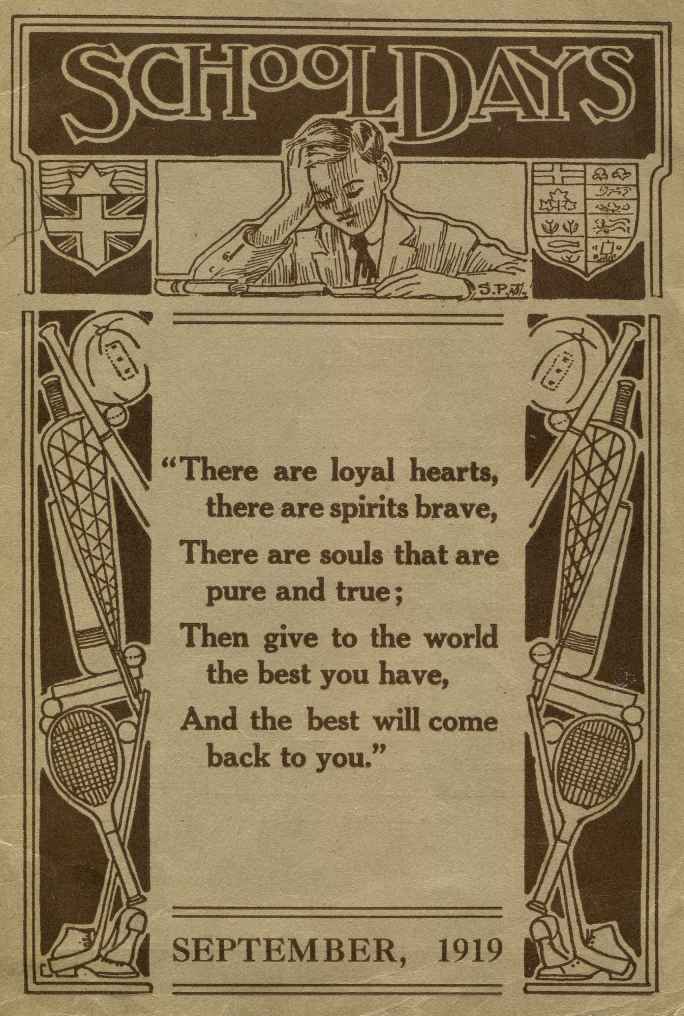
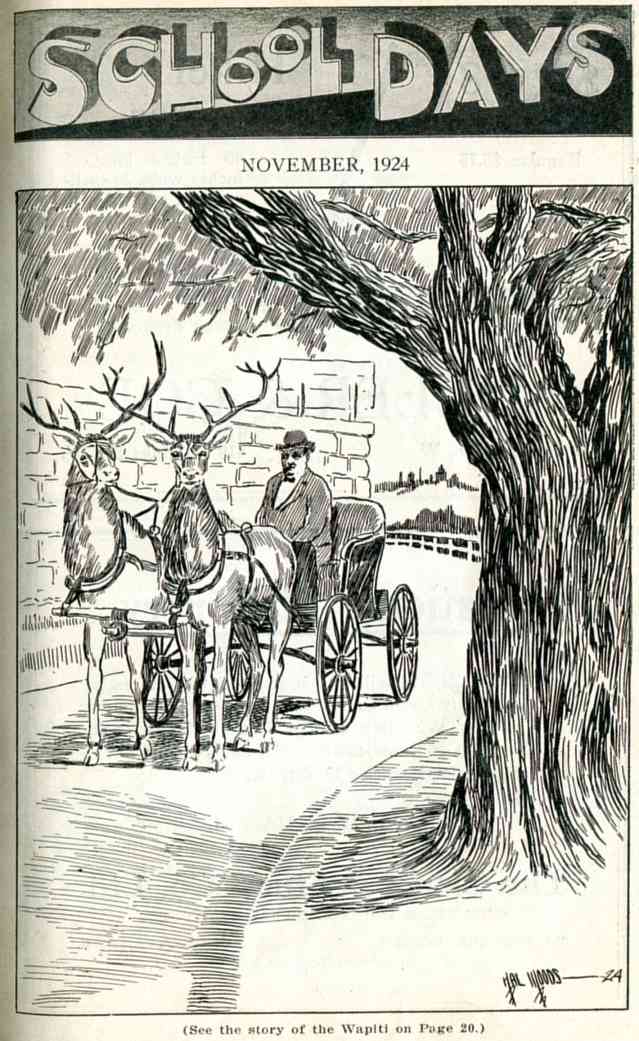
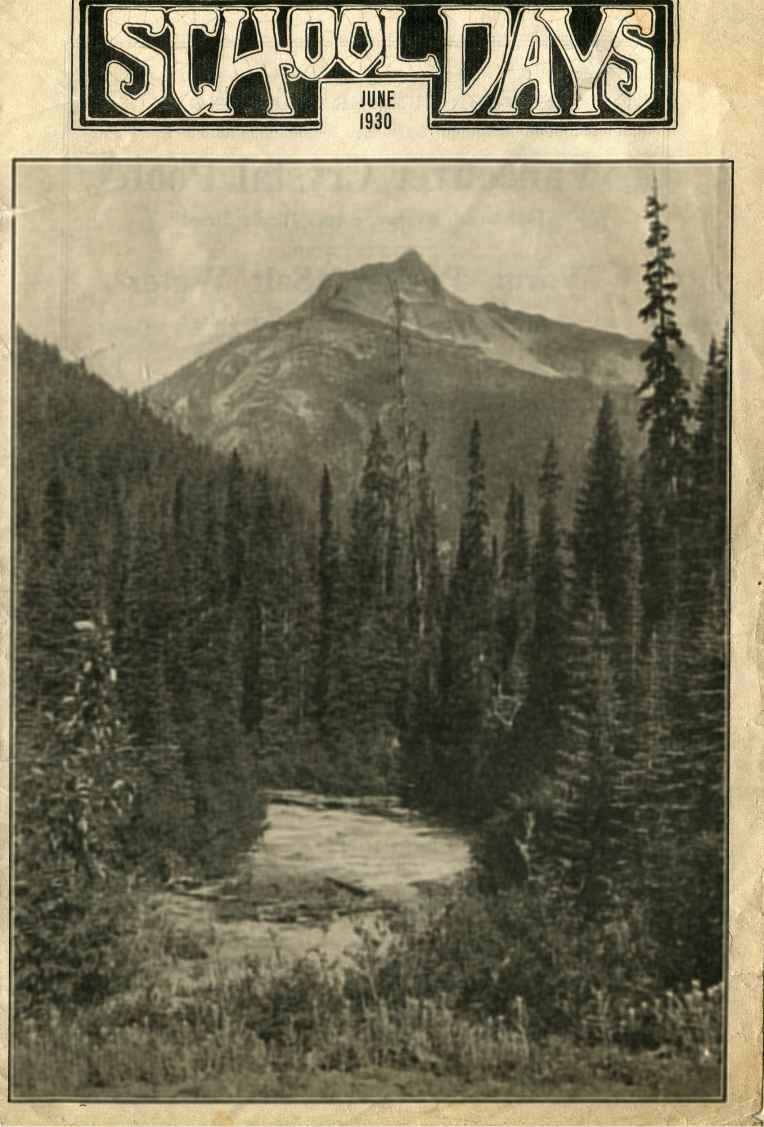
Inaugural issue 1919, 1924 cover image, final issue 1930
Partial list of artists published
School Days magazine was a cross between a school reader, a workbook, a comic
book, and a copy book. It was a pamphlet published in Vancouver by E.W. Reid, School Teacher
and Principal, under the auspices of the Vancouver School Board. The content of
the magazine was almost entirely provided by B.C. authors and schoolchildren.
It was intended for younger students, and sold for ten cents. The first issue
in September 1919 had a press run of 8,000 copies. Typically published monthly
during the school year, ten issues from September to June, the magazine enjoyed
an eleven year publication run.
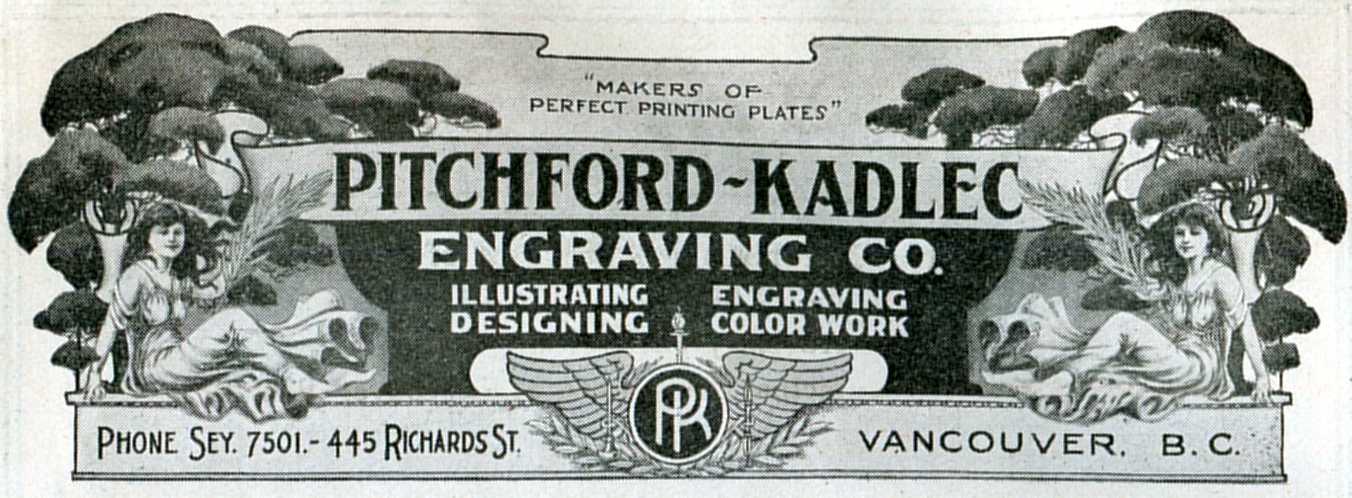
Each 32 page issue was a compendium of stories, contests, puzzles, quizzes, exercises, and
school sports results. The main educational content was provided in articles and
illustrations by a number of Vancouver and Victoria school teachers and Principals,
with occasional distinguished guests. There were many illustrations in every issue
- the early copies contained mostly pen and ink drawings - and later issues used
more half-tone photographs.
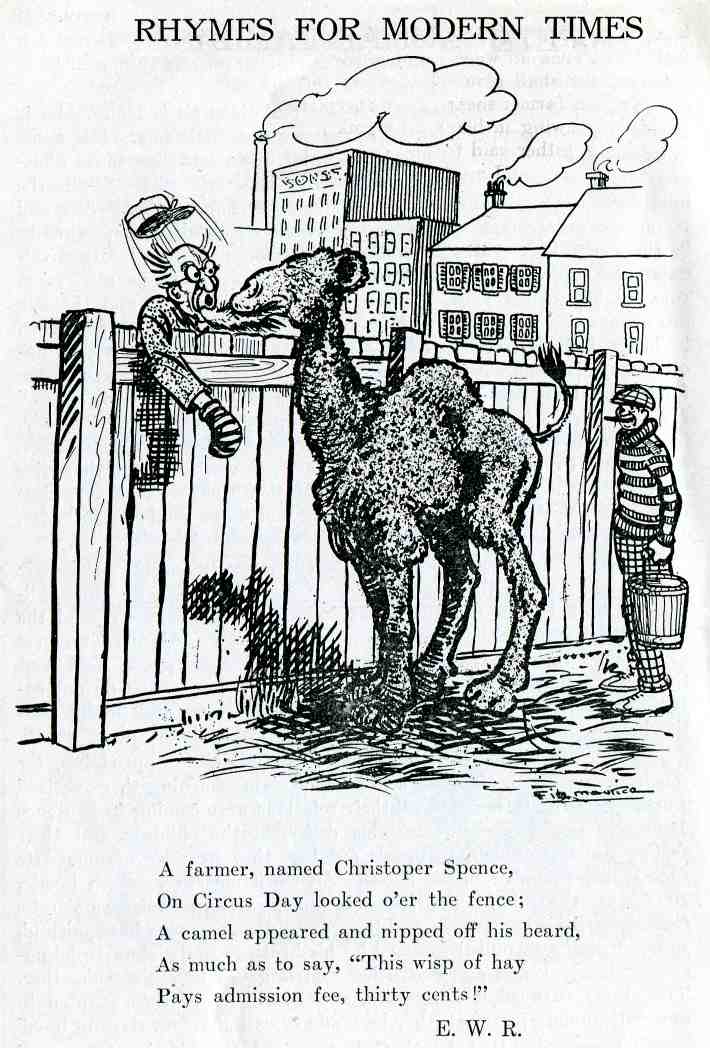
J.B. Fitzmaurice illustration December 1919
Republished December 1929
The articles covered a wide range of topics, including
history, geography, exploration, science, and nature. Puzzles and exercises
included arithmetic, logic, handwriting skills, drawing, poetry and limerick
writing, and short-story telling.
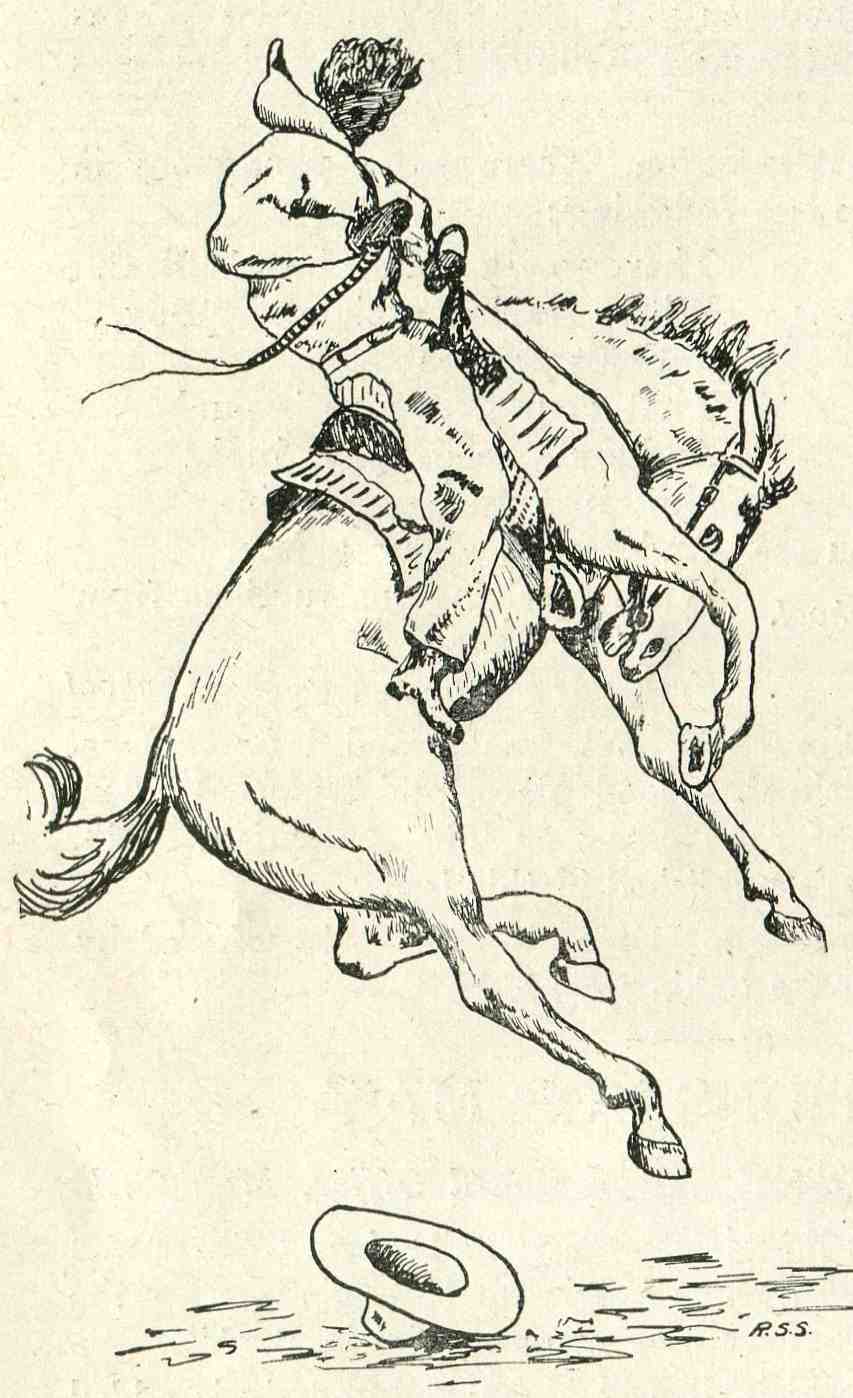
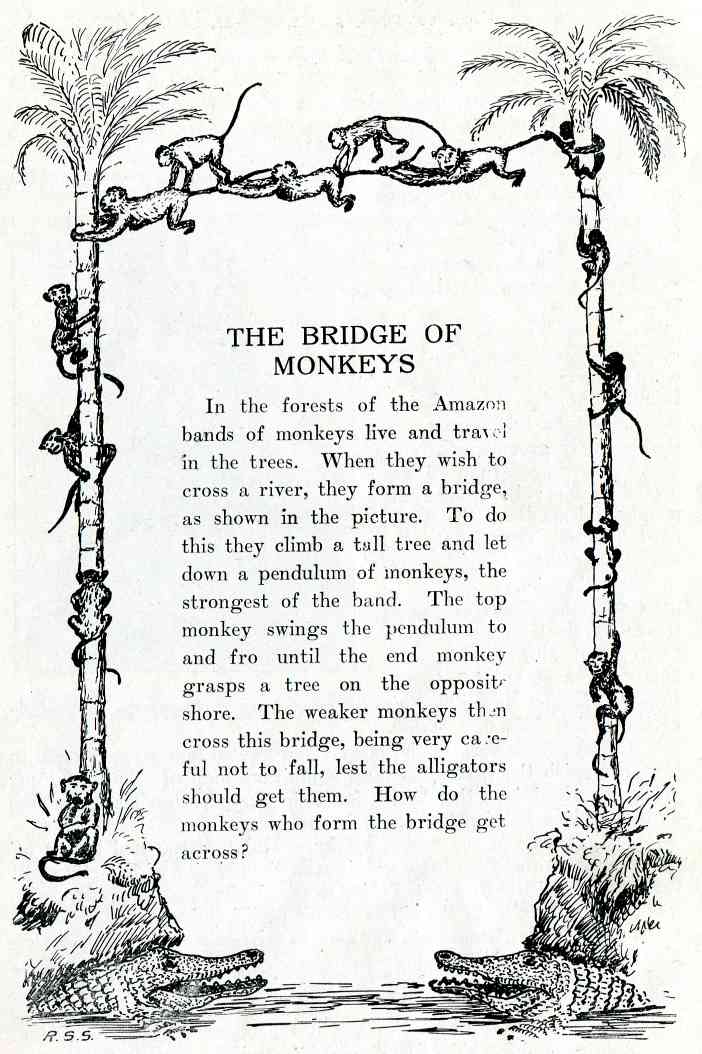
The Broncho by R.S. Sherman May 1920; June 1920 illustration
Although Vancouver's post-war political or ethnographic sentiments were occasionally
evident in items such as the editor's early contest to publish the best illustration
for a short story about two Hindoos blowing themselves up trying to remove a
stump, on the whole the magazine contained a wealth of interesting and informative
articles for the student.
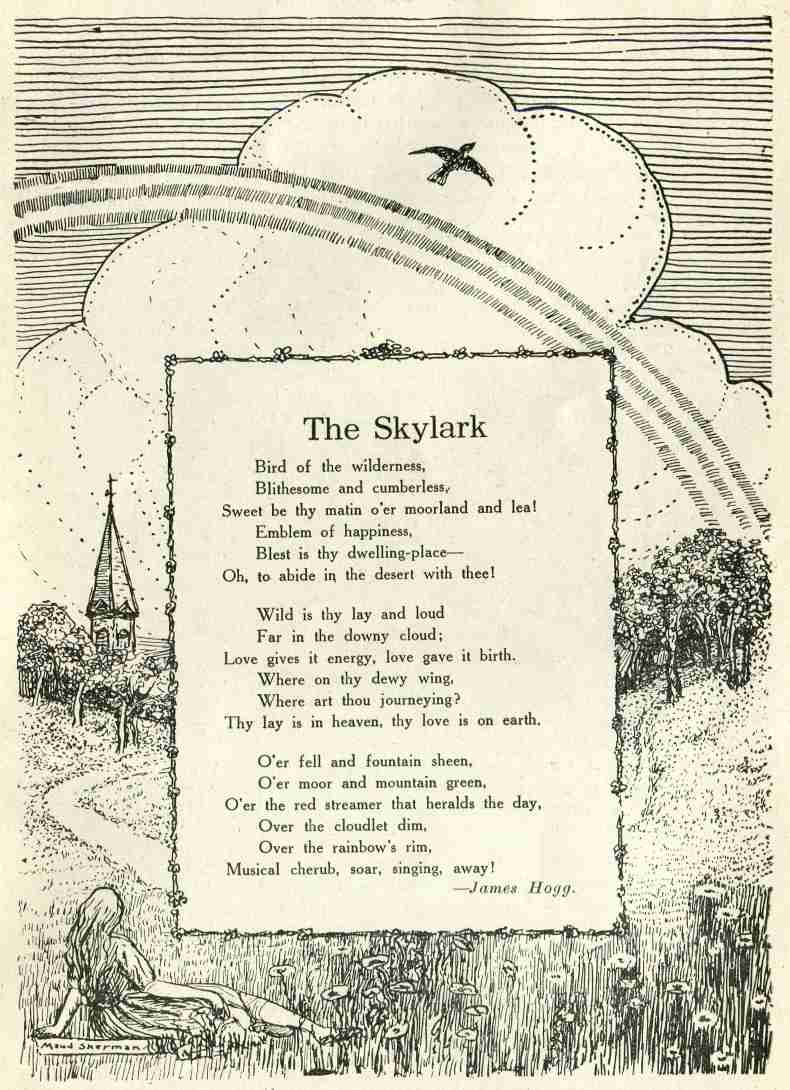
May 1920 illustration The Skylark by Maud Sherman
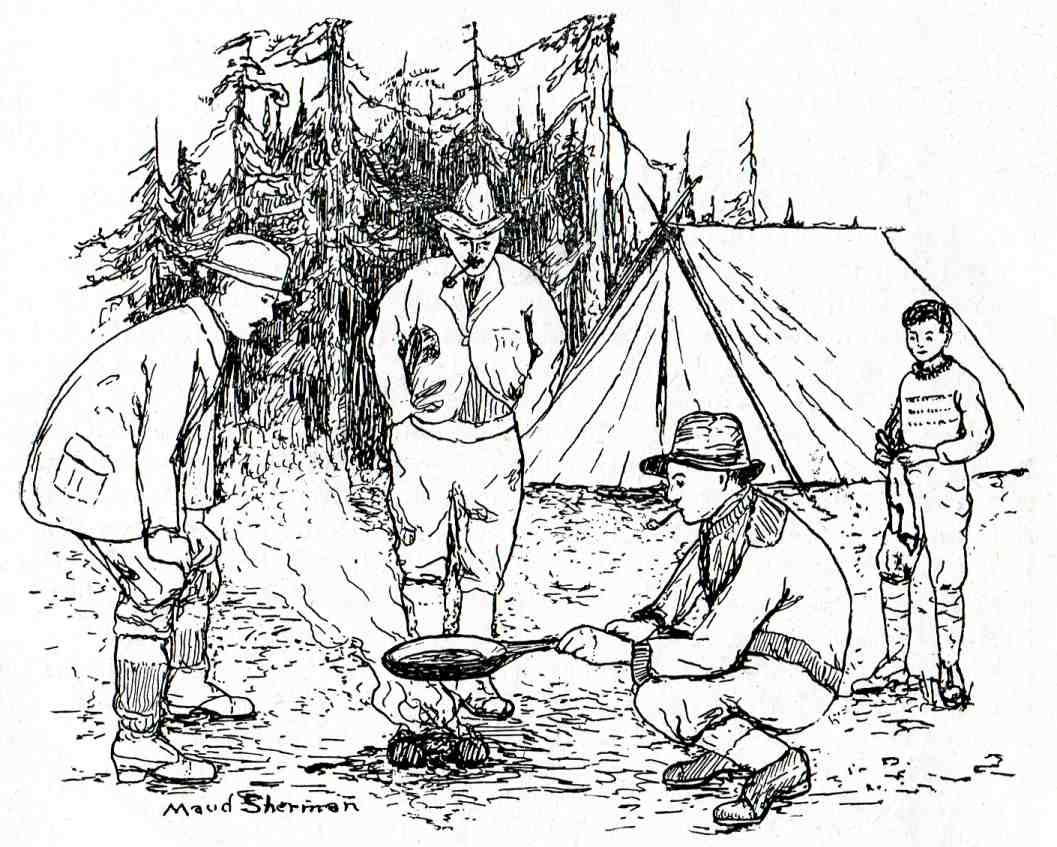
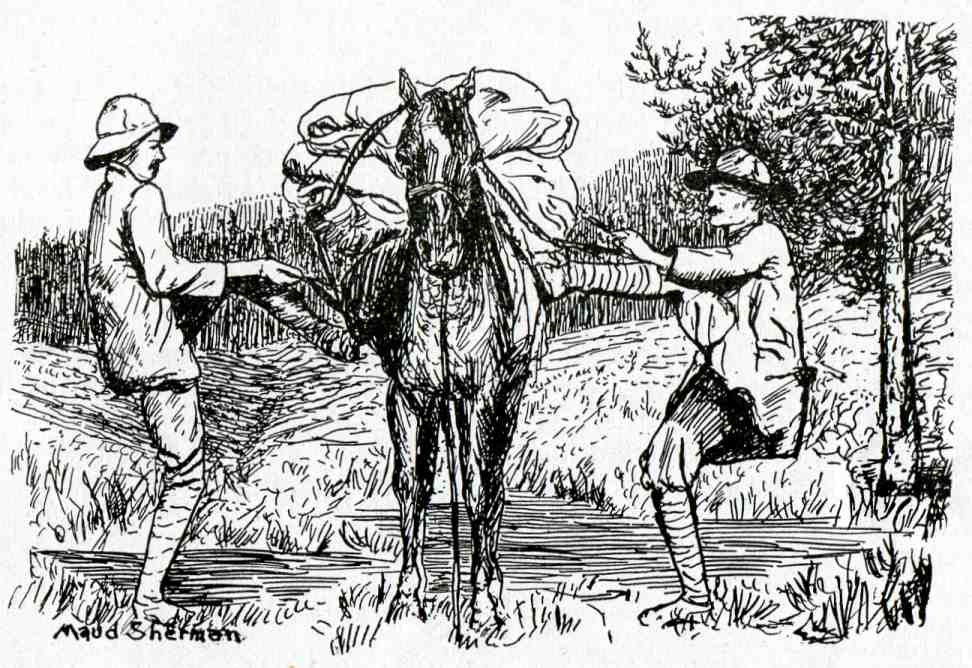
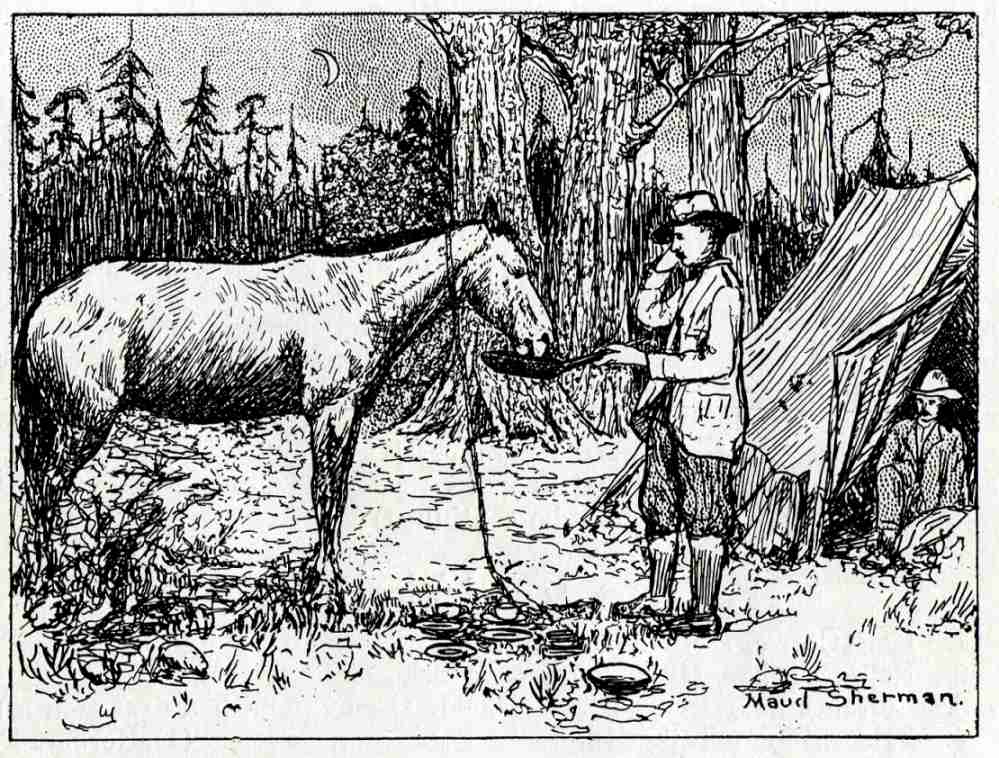
January, February and March 1921 illustrations by Maud Sherman
for The Bug Hunters
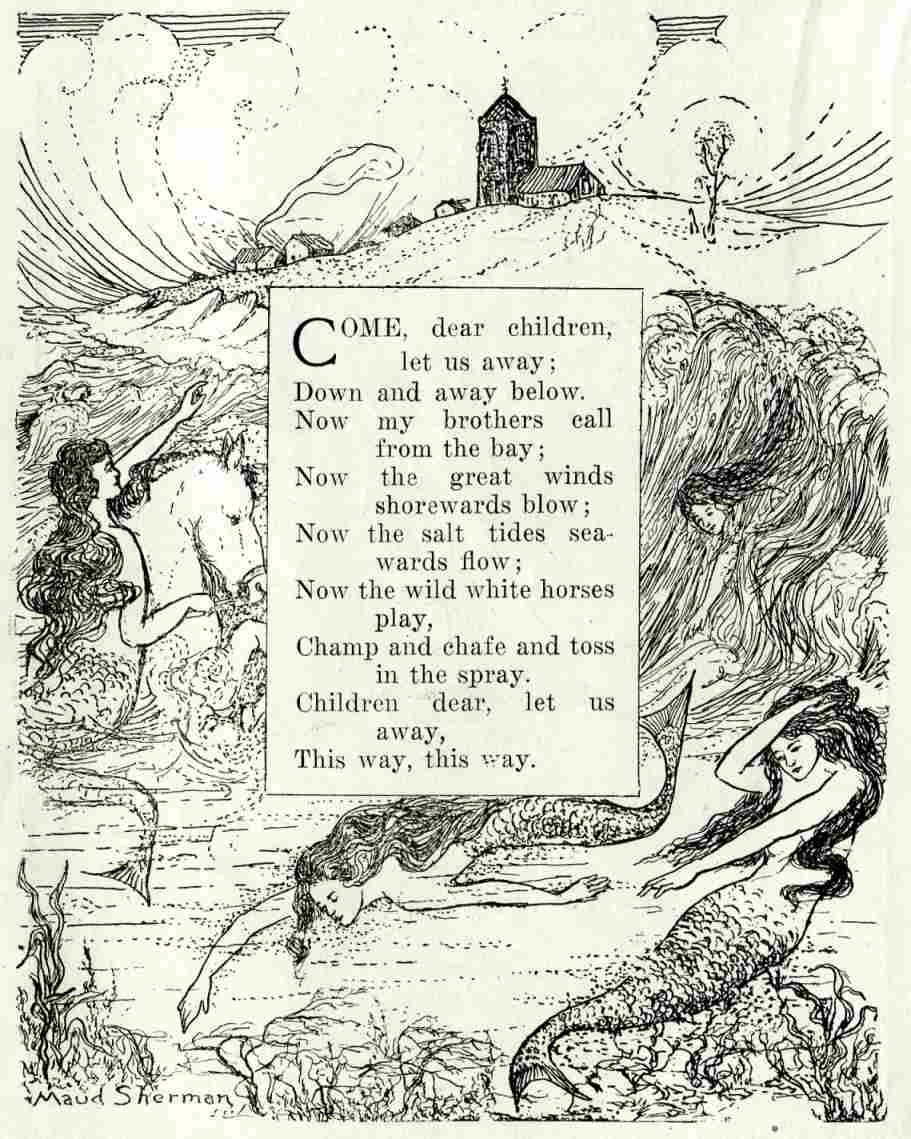
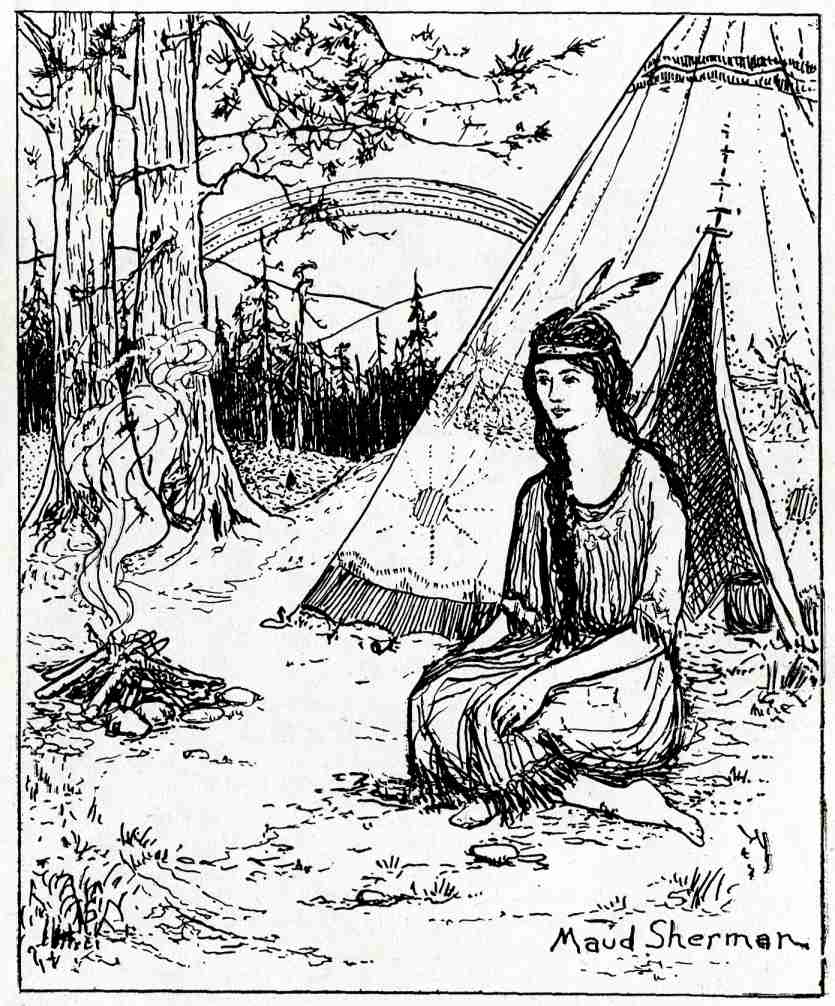
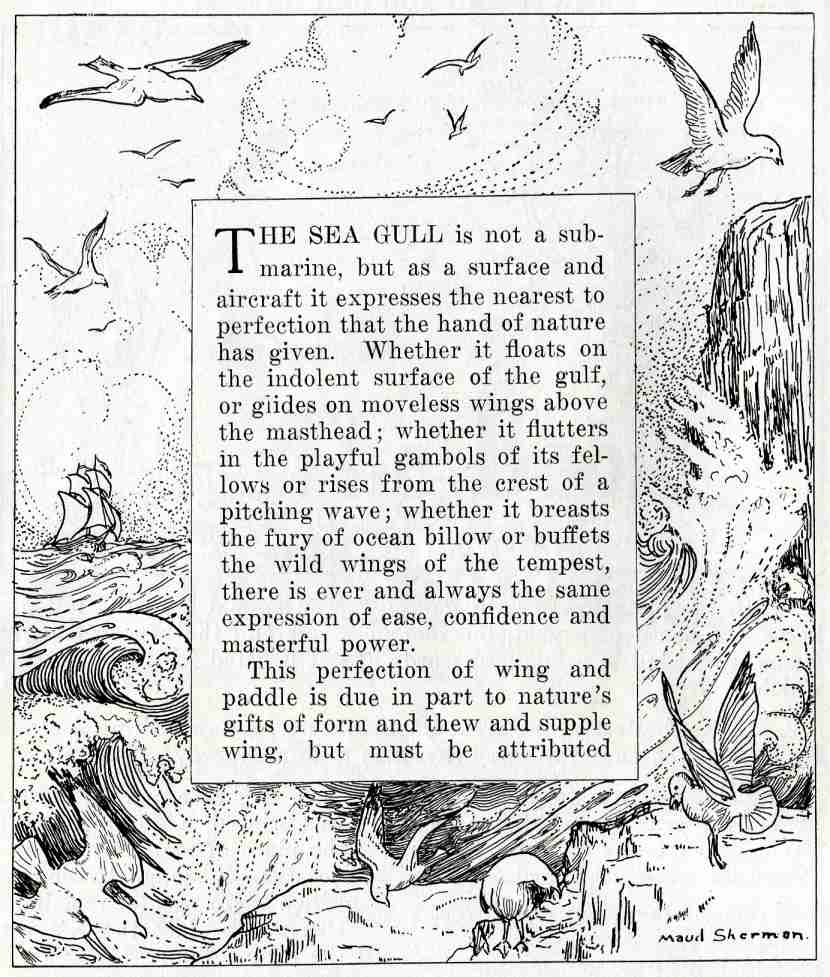
March 1921 illustrations by Maud Sherman
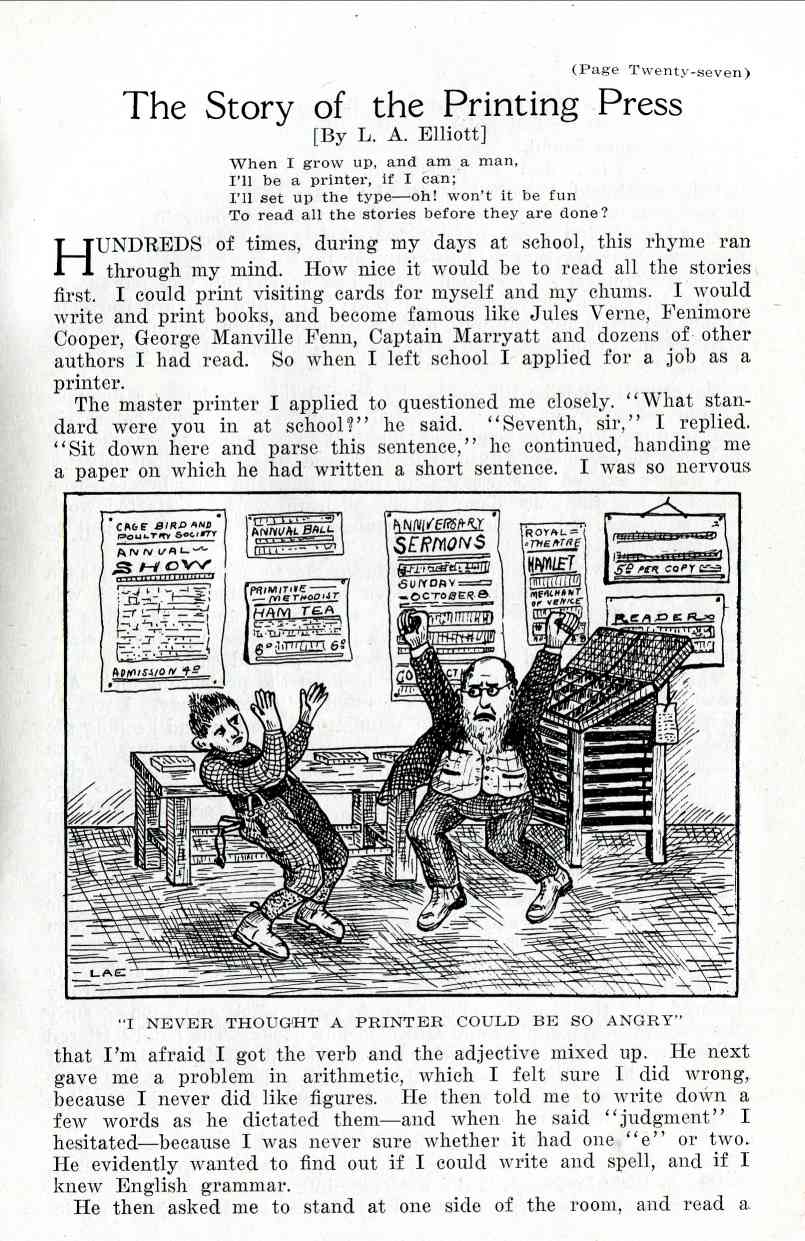
March 1921 article and illustration by L.A. Elliott
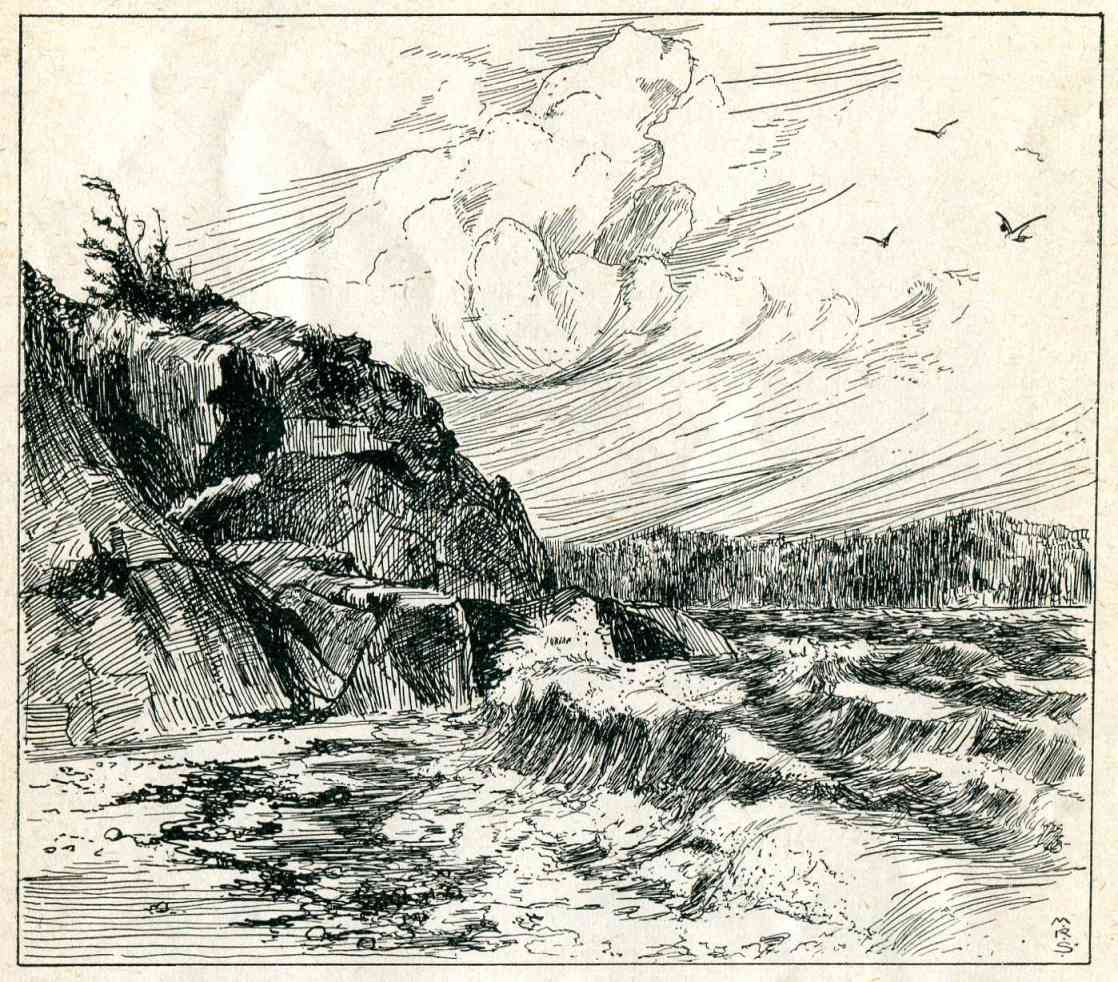
April 1922 illustration by Maud Sherman
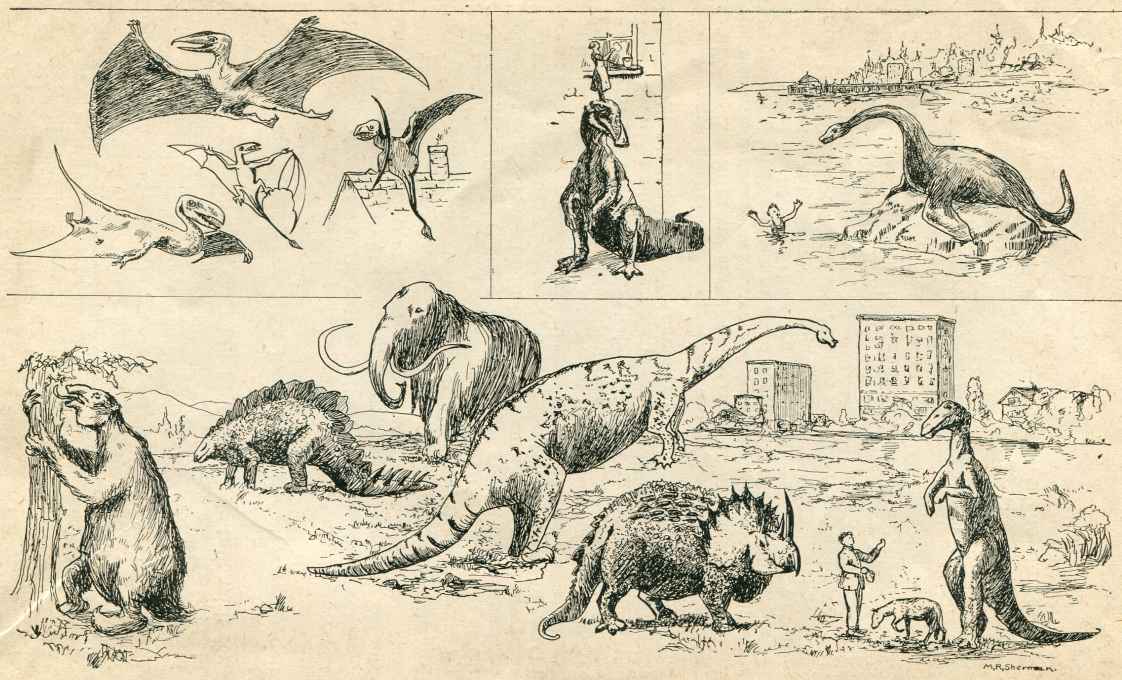
Creatures of a Bygone Age
One of the most prolific authors in the magazine was
Ruiter Stinson Sherman, Principal of Admiral Seymour
School in east Vancouver. His articles covered almost the entire run of publication - over
125 stories and poems in all - with most of them illustrated by himself or his daughter
Maud Sherman. One of the longer tales was serialized in
"The Bug Hunters", Parts One through Nine: a story of a pack-horse trip over the
Dewdney Trail from Hope to Princeton and back again - looking for insects. Sherman's
"Professor Instinct" series included "Professor Instinct's School for Cannibals", and
"Professor Instinct Gives A Banquet".
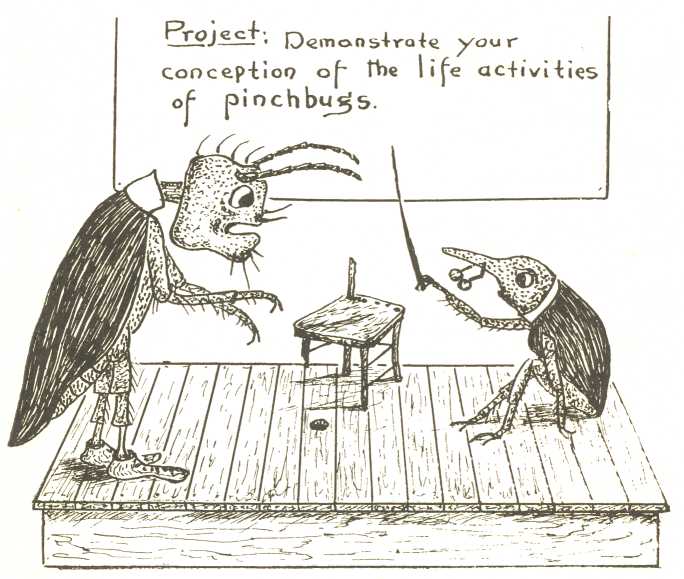
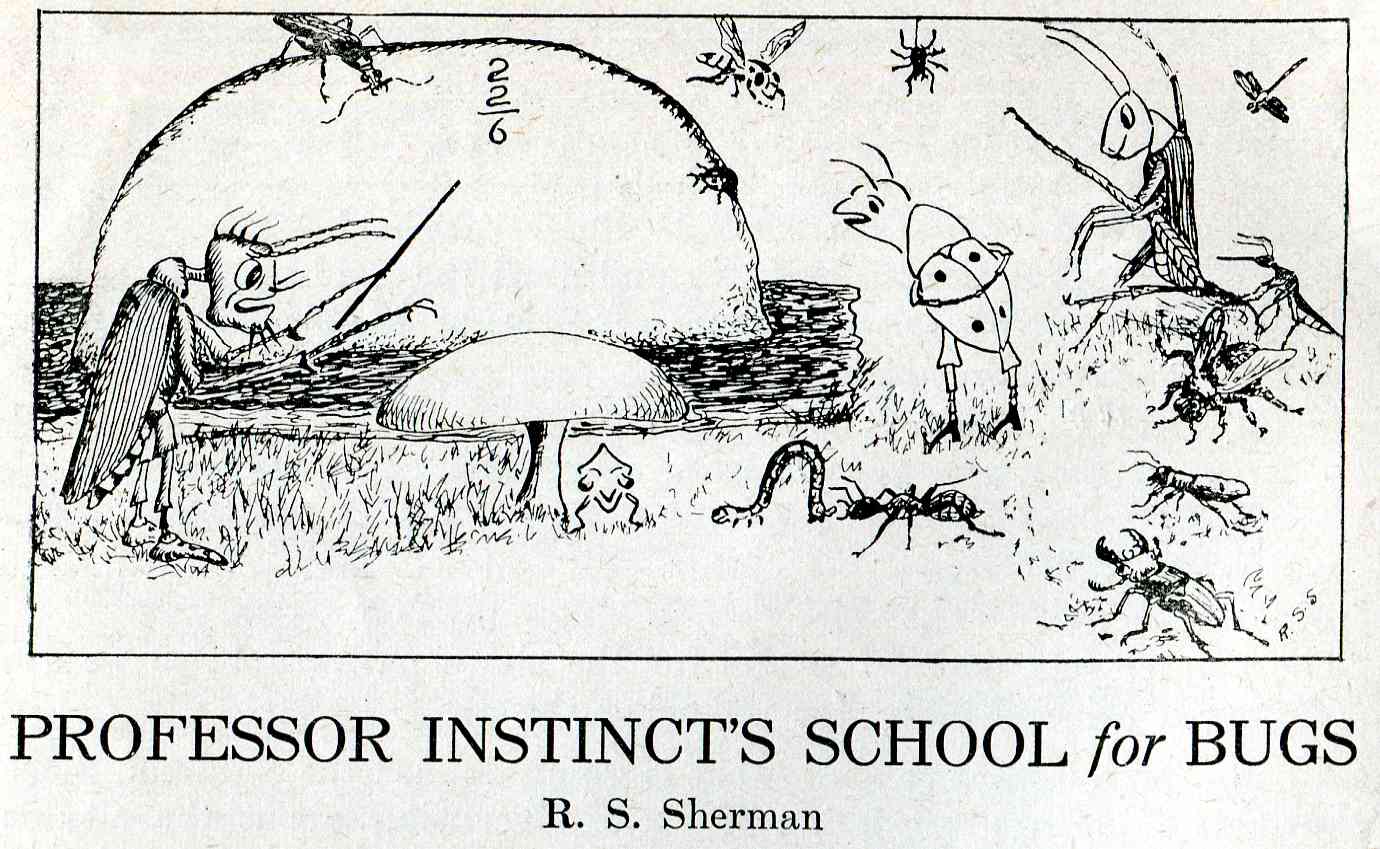
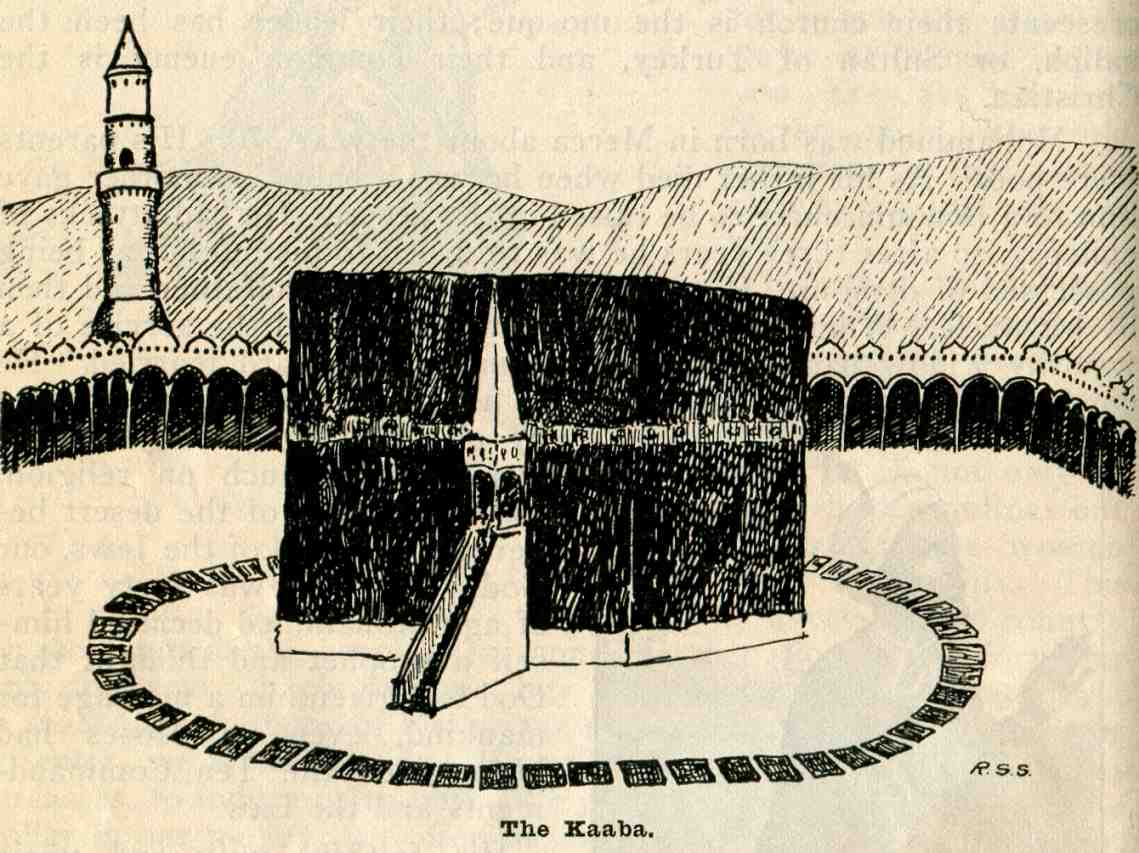
Illustrations by R.S. Sherman
The pen and ink drawings in School Days are worthy of study in themselves. In
addition to the scores of drawings by the Shermans, there are many drawings by well
known Vancouver artists such as
Spencer Perceval Judge, and
Charles H. Scott (Director of the
Vancouver School of Decorative and Applied Arts). Late in the 1920s a
number of illustrations were also provided by various students of the art school,
including
Ellen M. Moore,
Maisie Robertson, and
Peter Meilleur.
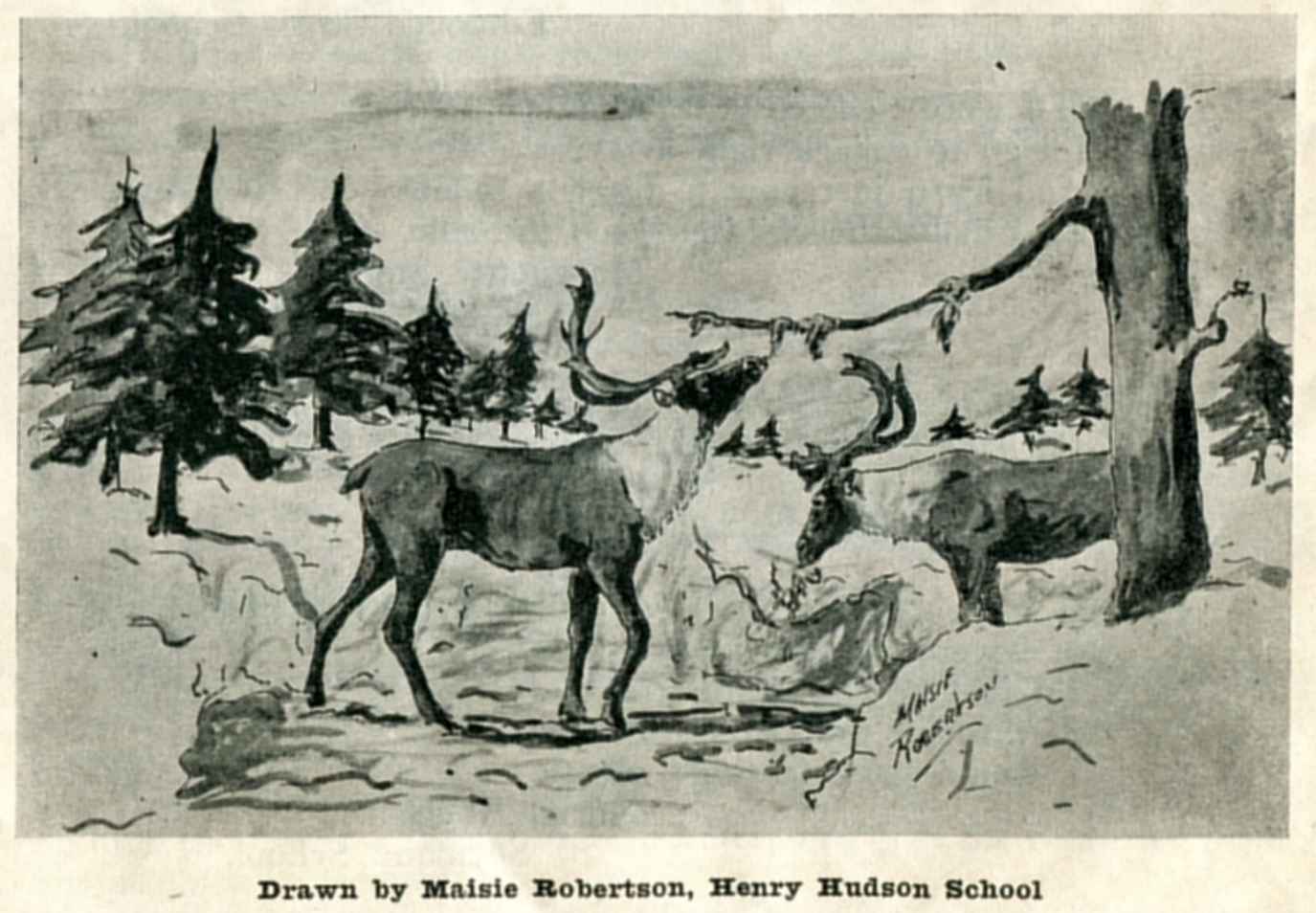
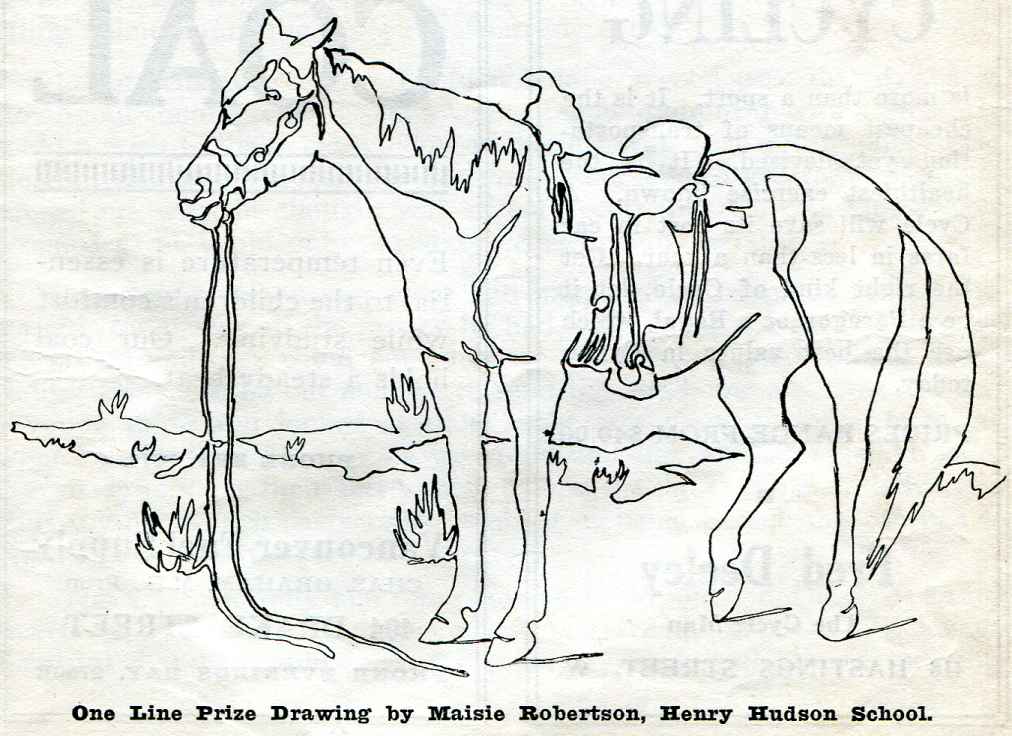
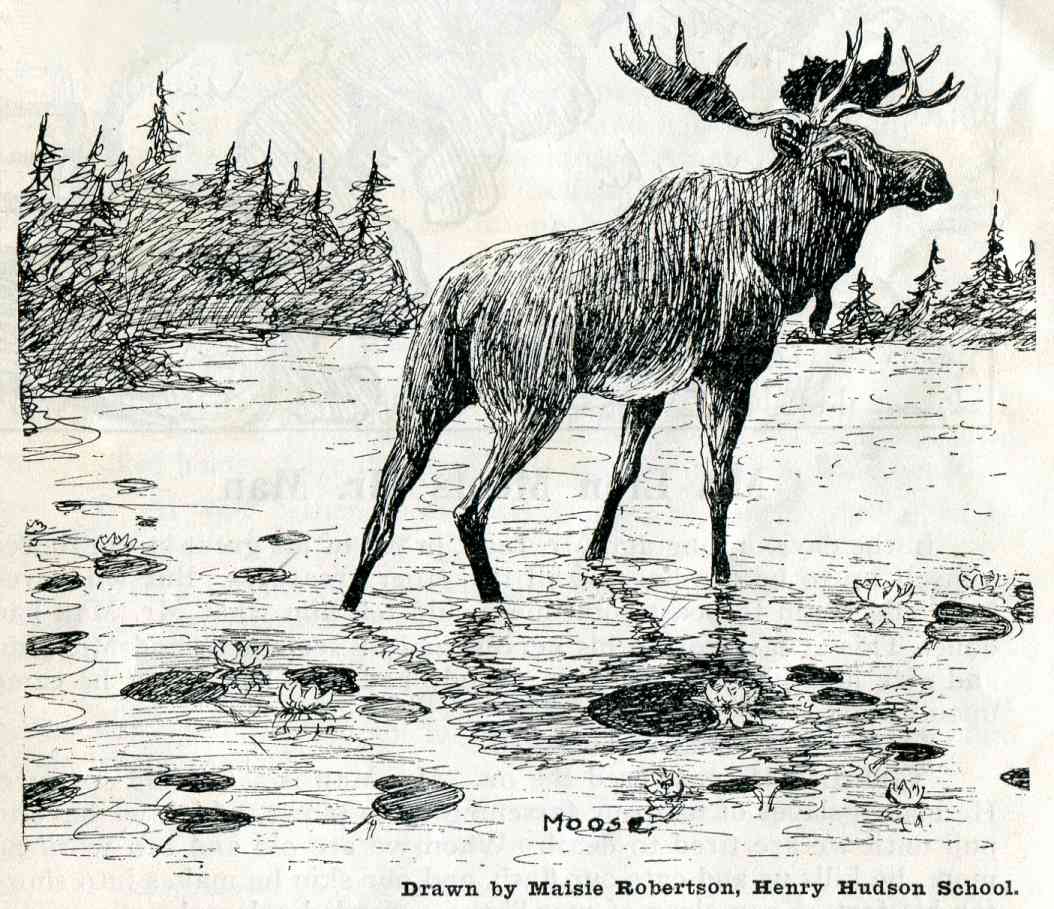
Drawings by Maisie Robertson
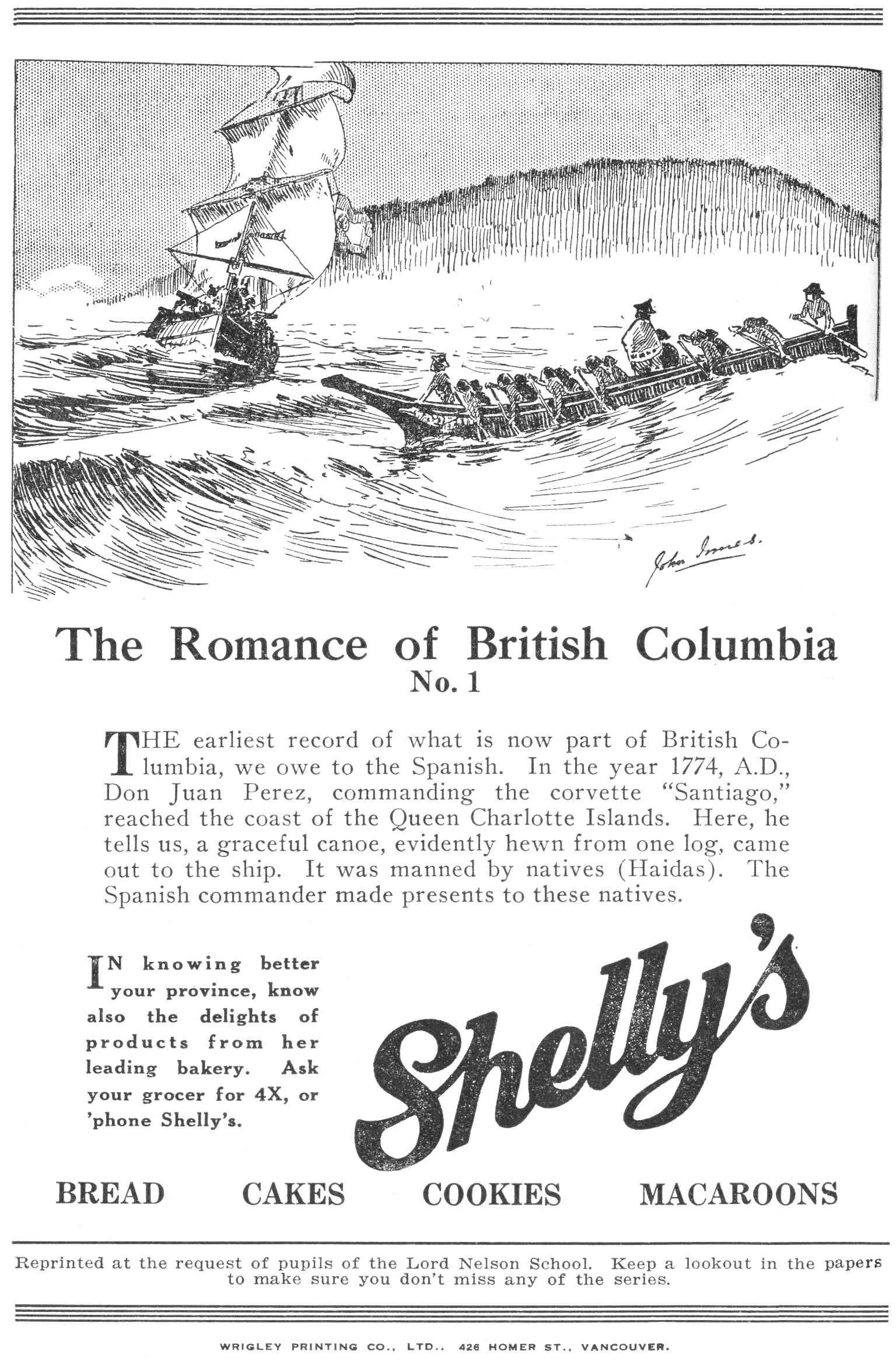
John Innes pen & ink drawing
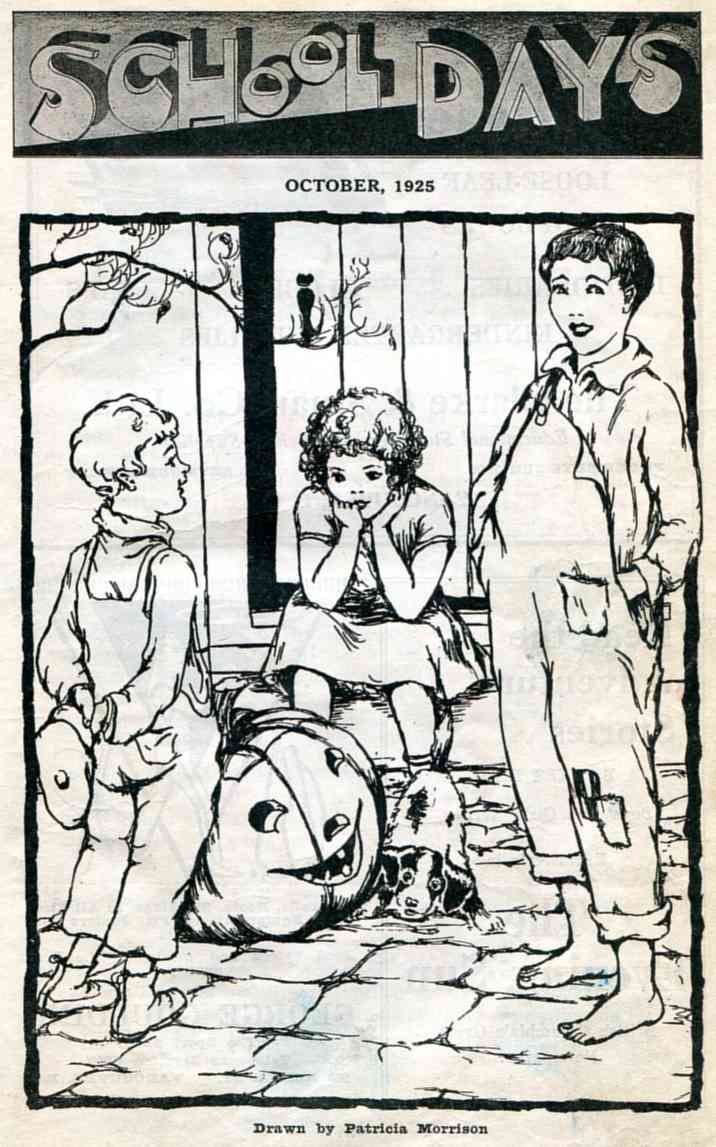
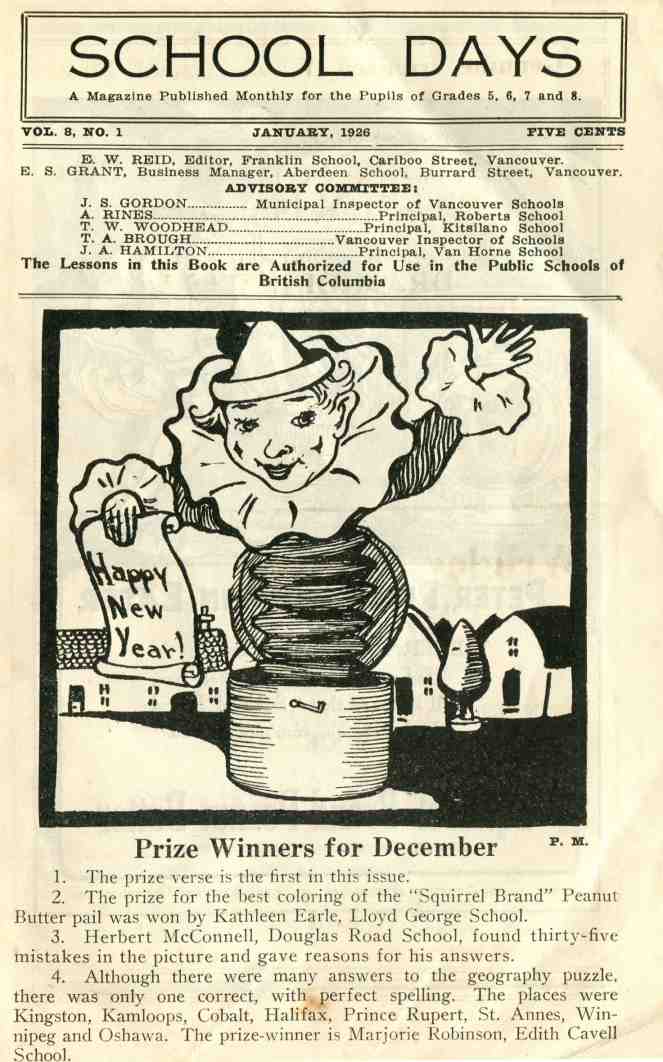
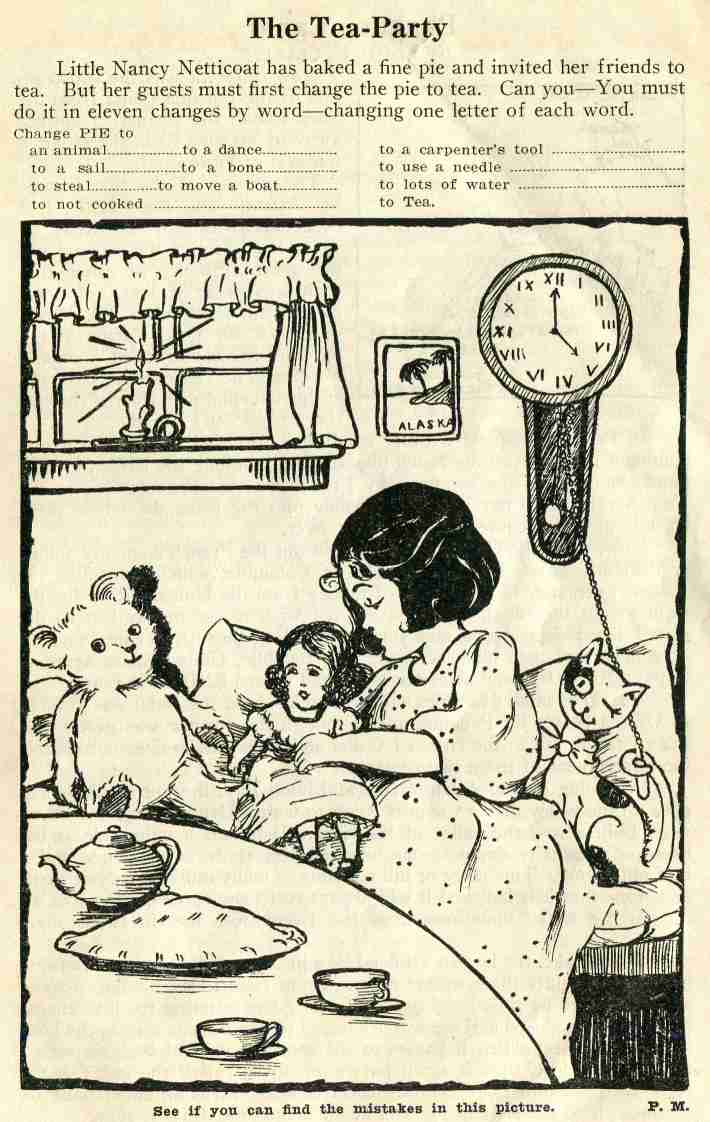
Drawings by Patricia Morrison
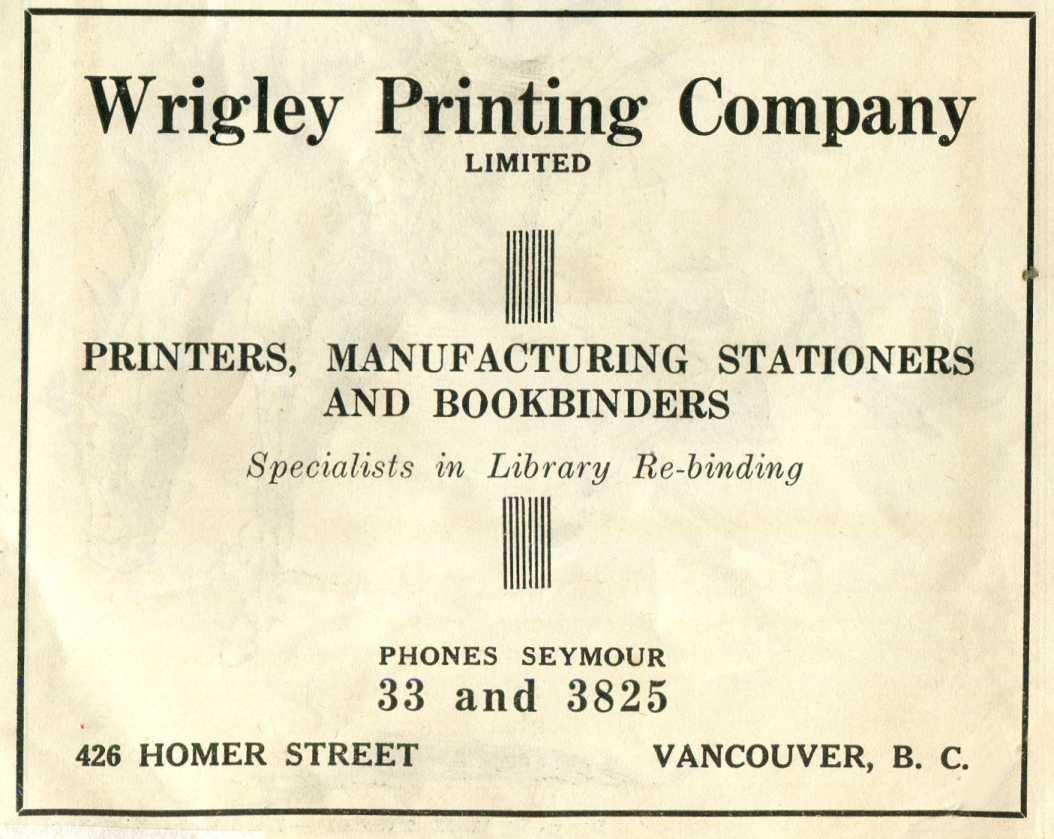
January 1926 Wrigley's advertisement
Charles H. Scott often contributed a full page pen & ink
drawing to School Days for special holidays such as Easter and Thanksgiving.
Spencer Perceval Judge, a teacher, was another prominent
Vancouver artist of British birth and training whose drawings graced the magazine
cover for years, and filled out the articles with excellent pen and ink work.
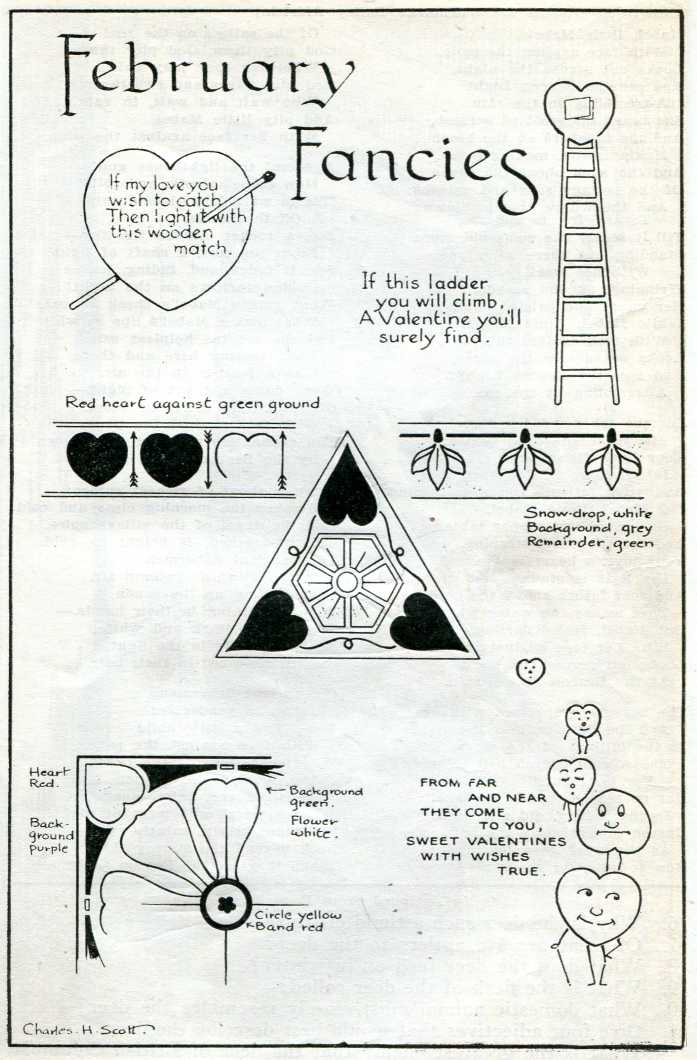
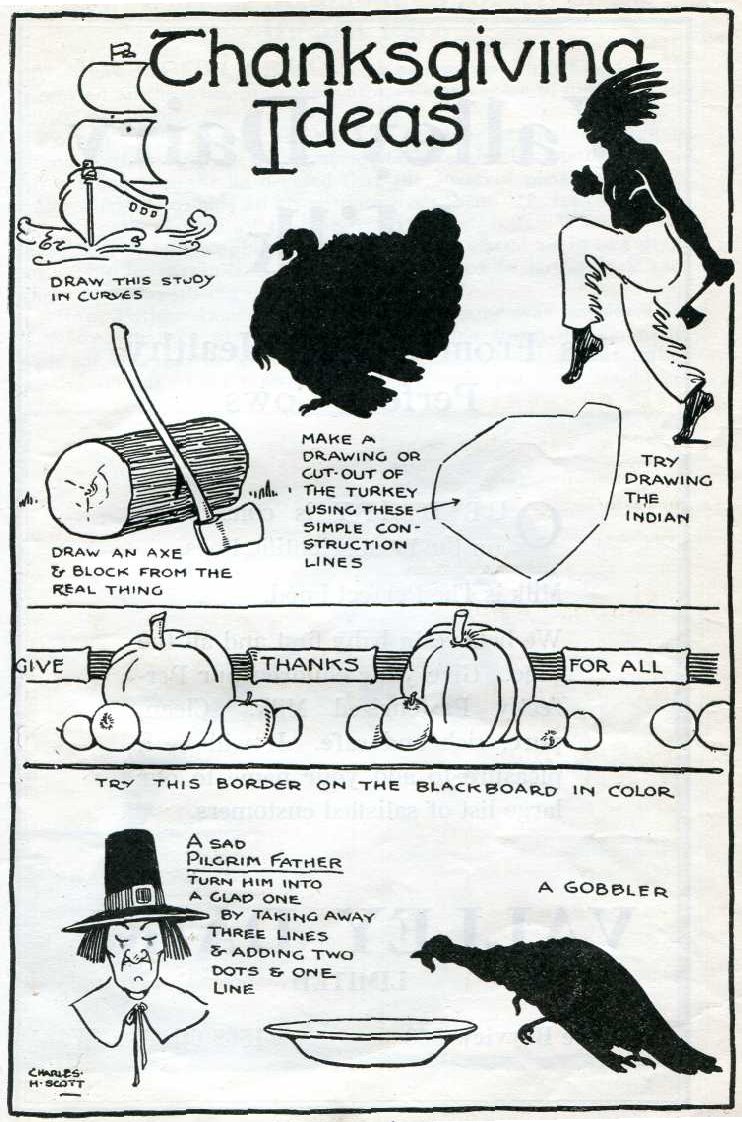
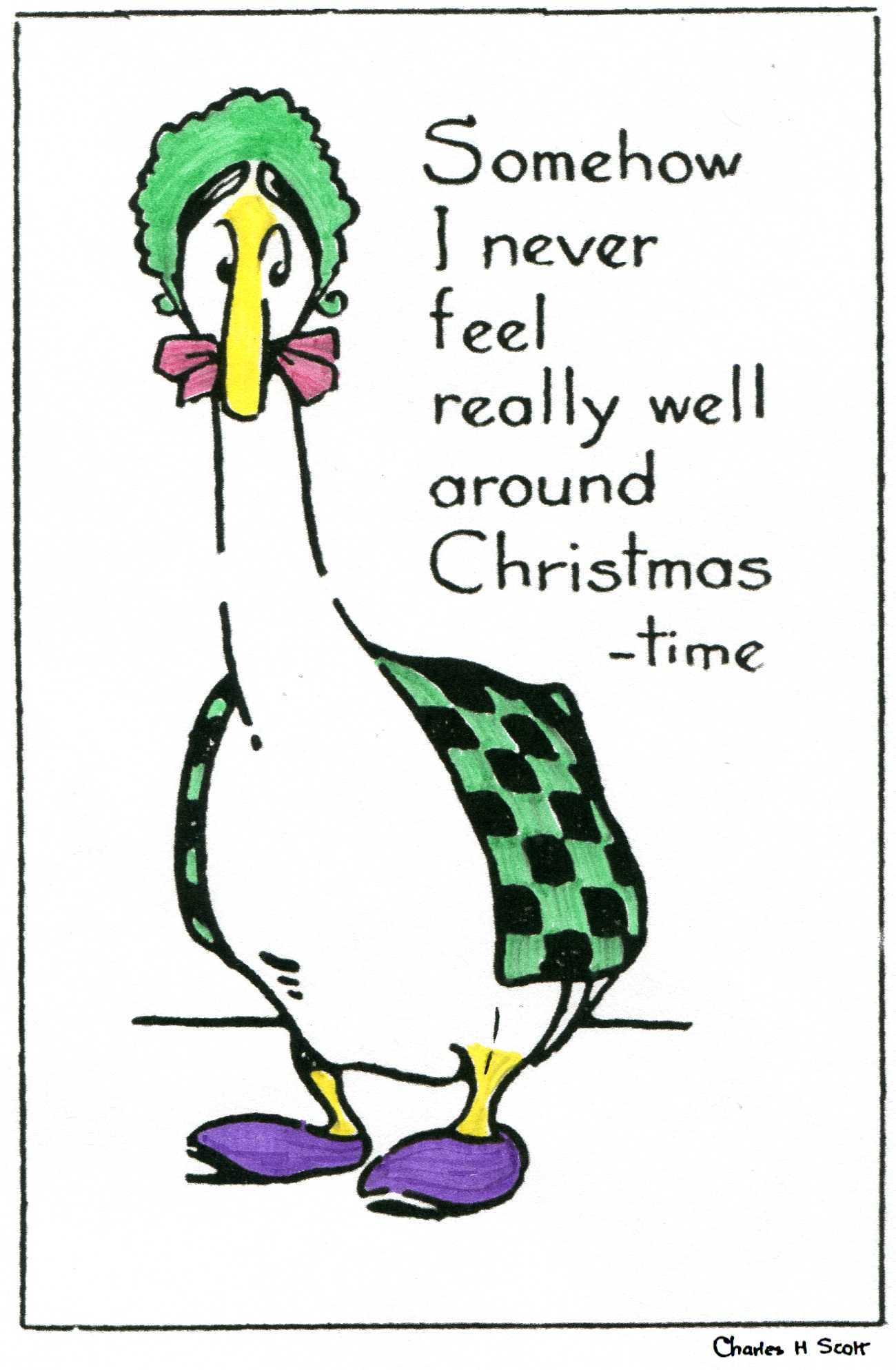
Illustrations by Charles H. Scott
In a very real way the magazine nurtured the literary and artistic tastes of the
young students, without condescension. The generous and varied offerings of
knowledge, and the provision of many ways for students to contribute to the magazine,
were followed up with frequent publication of the student efforts. Many of the
magazine's front covers were student "prize drawings" and paintings. The "one-line
drawing" was a perennial favorite for a contest.
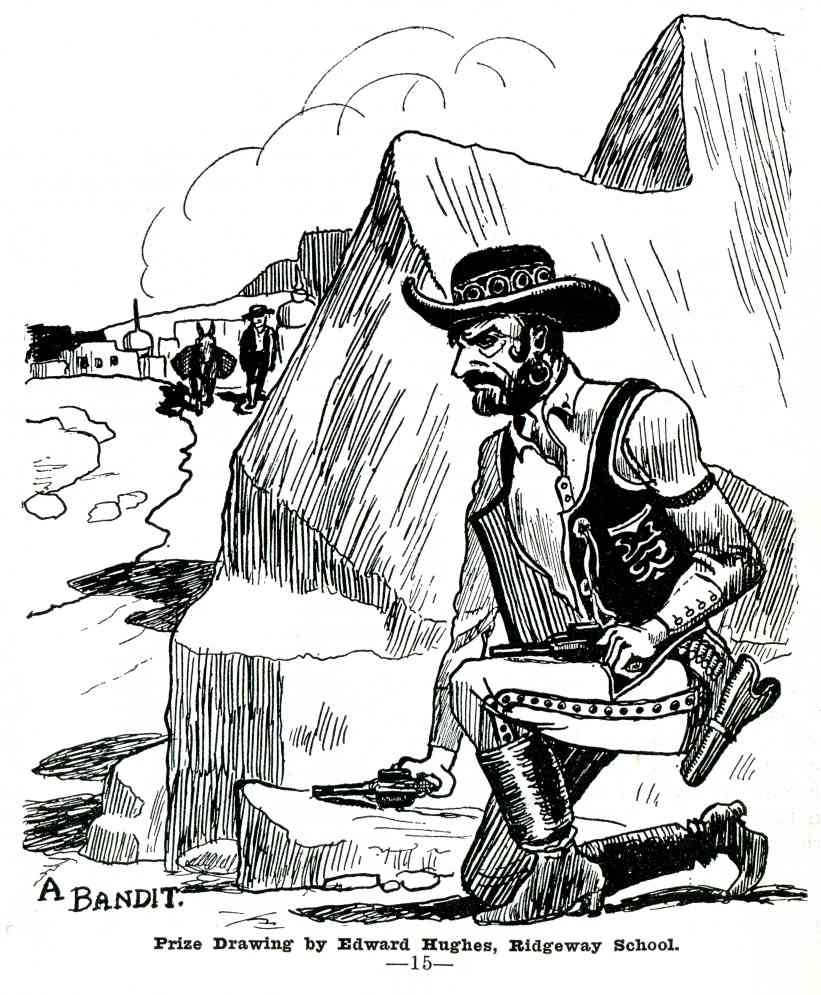
Illustration by E.J. Hughes, 1925
The magazine also nurtured the writing and publishing skills of the publisher
E.W. Reid. He wrote a number of poems and articles for School Days, and subsequently
co-authored a number of school books and readers for J.M. Dent & Sons,
usually with R.S. Sherman. Elmer also wrote a number of articles about
teaching in the B.C. Teacher, the magazine of the B.C.T.F. - all the while continuing
in his position as School Principal, first at Franklin School and then moving to
Admiral Seymour School when R.S. Sherman retired in 1932.
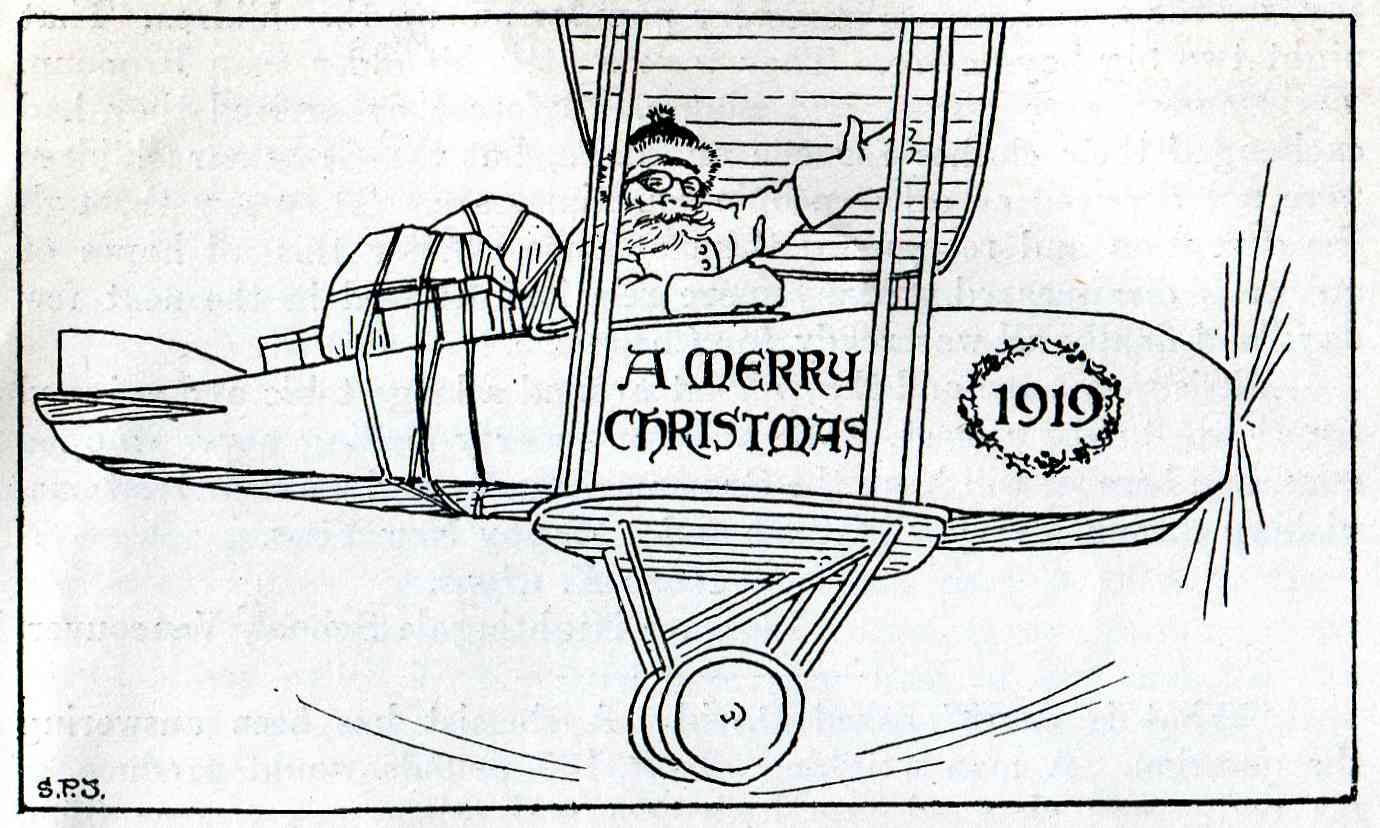
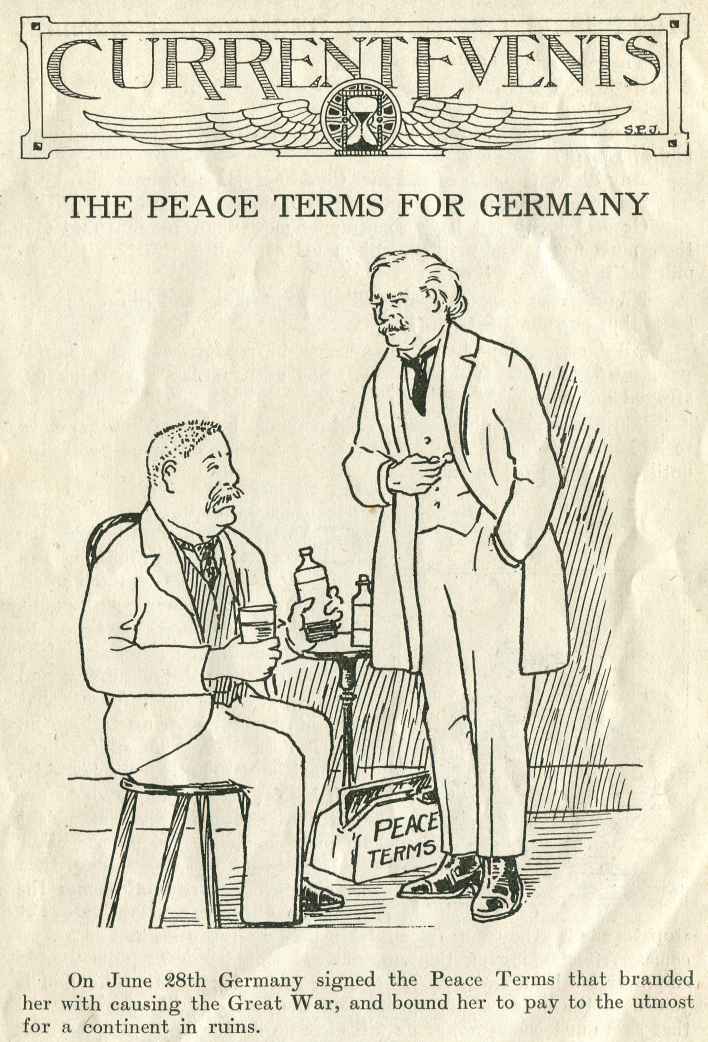
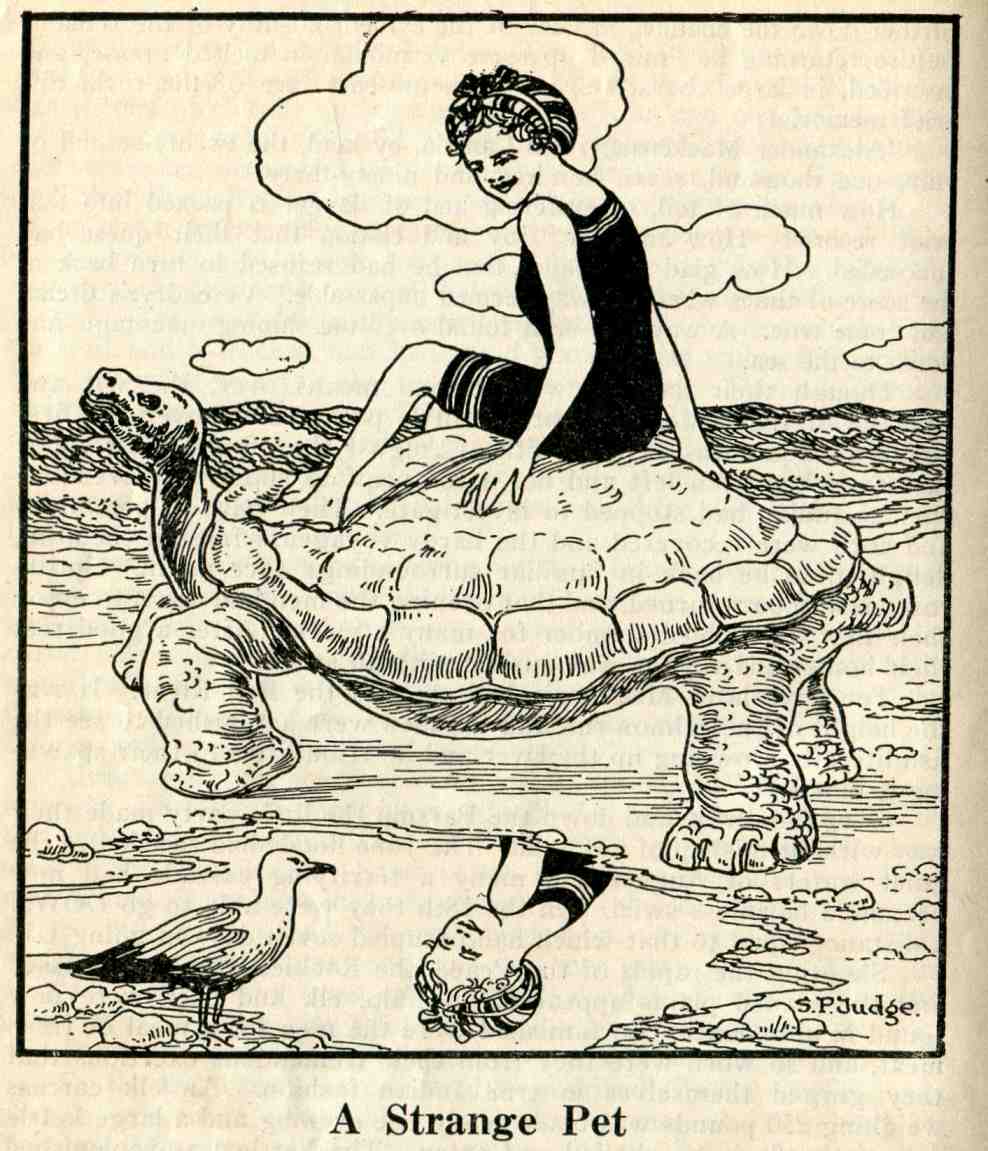
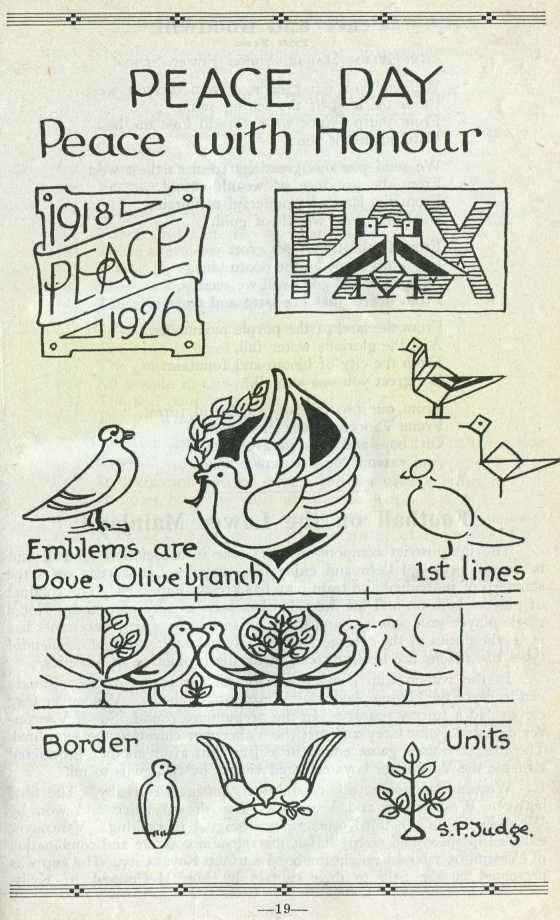
Illustrations by S.P. Judge 1919, 1919, 1925, 1926
School Days perhaps broke new ground with its unusual "Save The Forests" issue of
April 1926. For the only time in its publication run the whole magazine was devoted
to a single, non-holiday related topic...and decades ahead of its time was expressing
worries about the condition of B.C.'s forests after logging. An article titled "The
Logging Industry" by R.S. Sherman was illustrated with a photograph by Leonard Frank,
one of Vancouver's prominent early photographers.
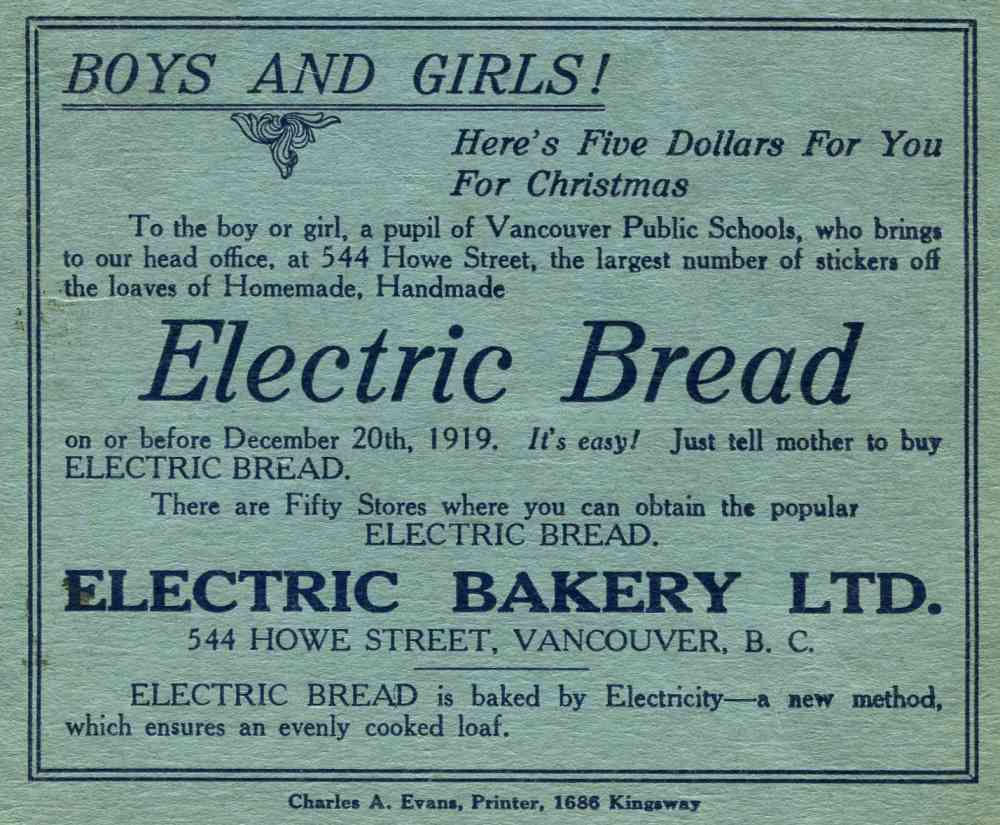
Advertisement for "electric bread" 1919
The June 1926 issue of School Days included an article titled
On the Selection of a Career, written by
John Kyle, who was Director of Technical Education for the
Province of British Columbia and a well-known supporter of the arts.
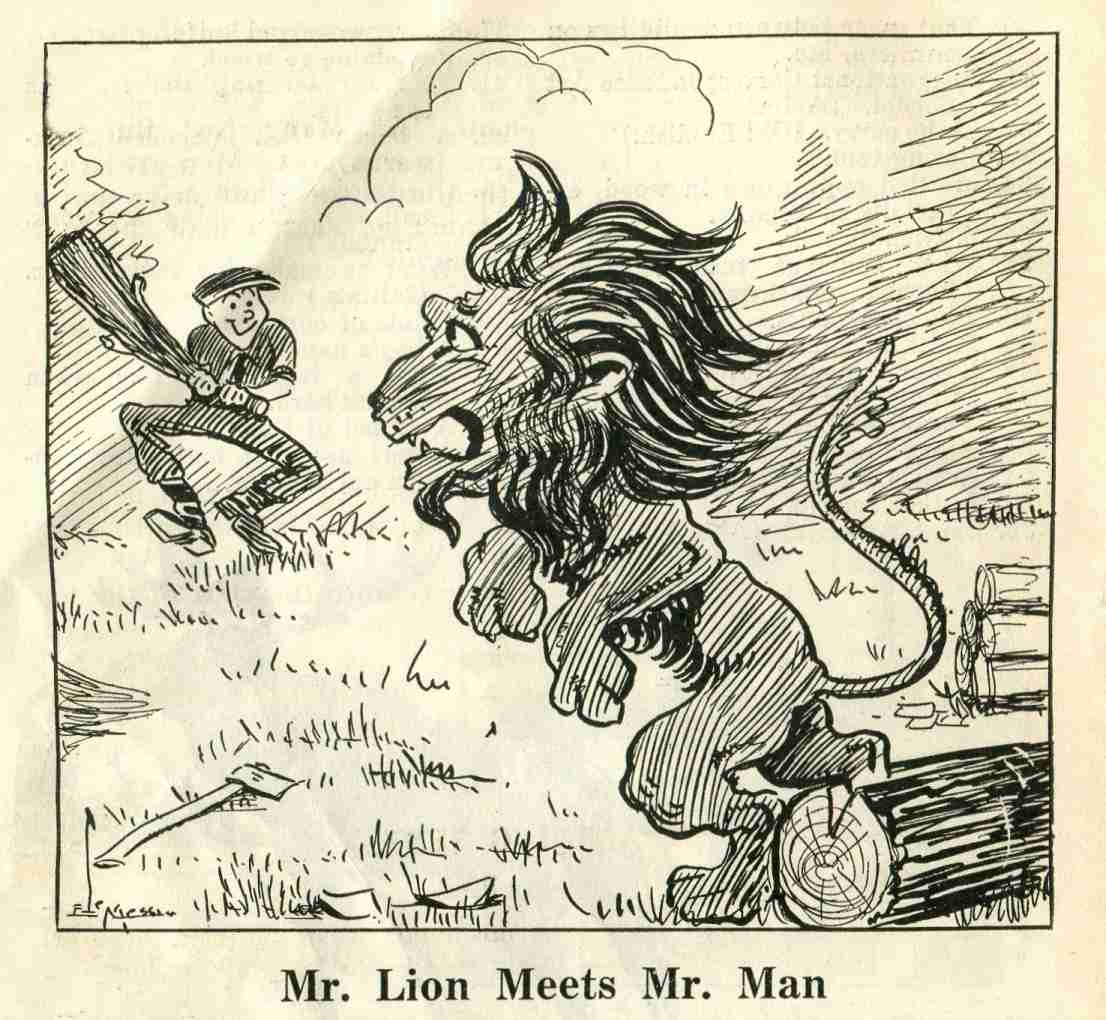
Ernest Le Messurier cartoon, January 1926
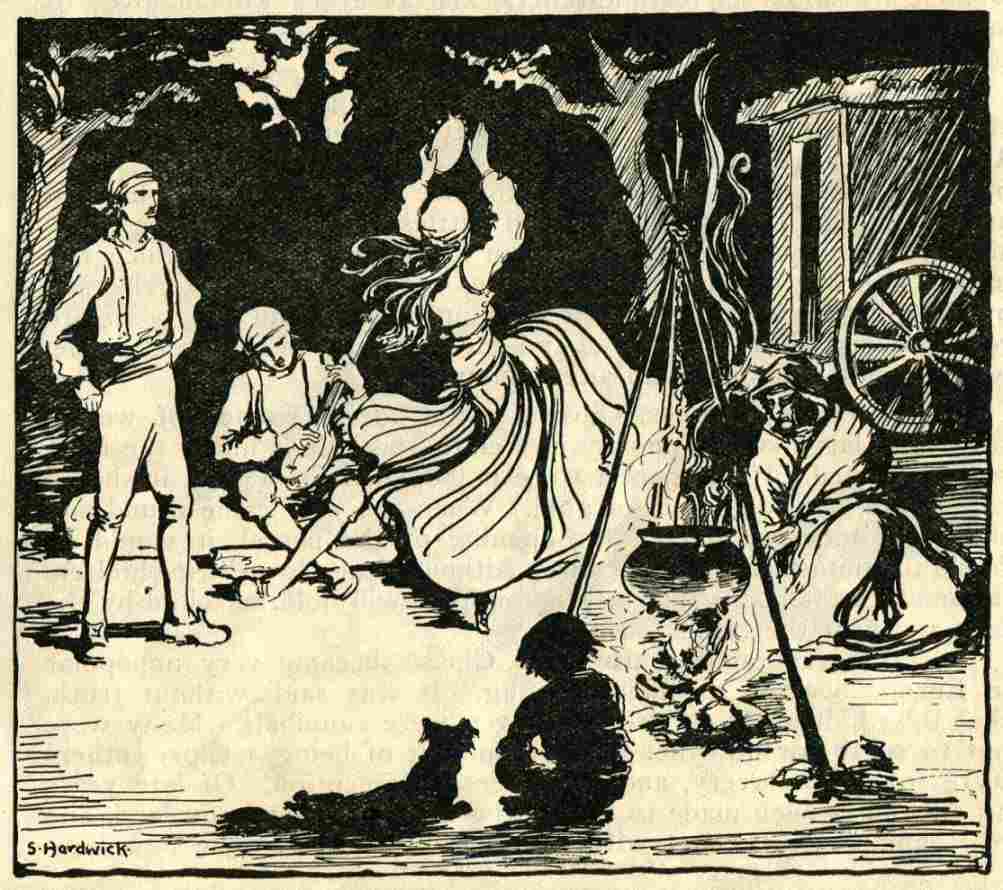
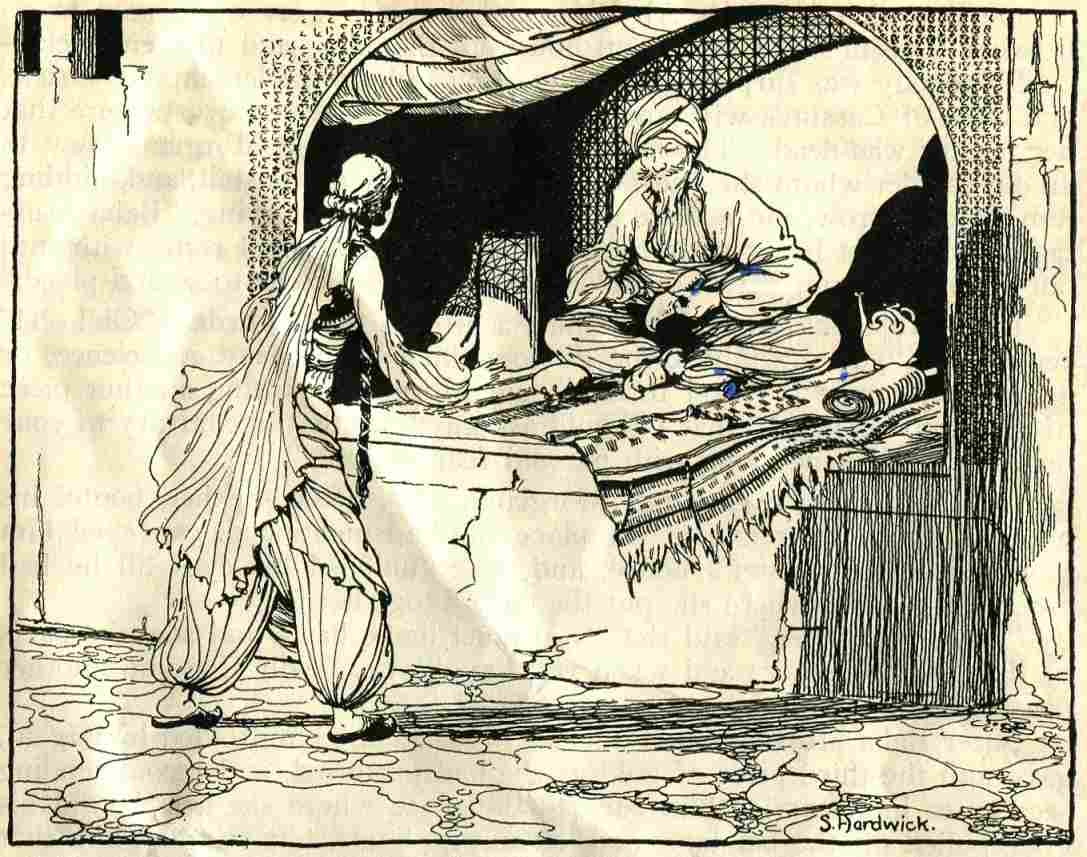
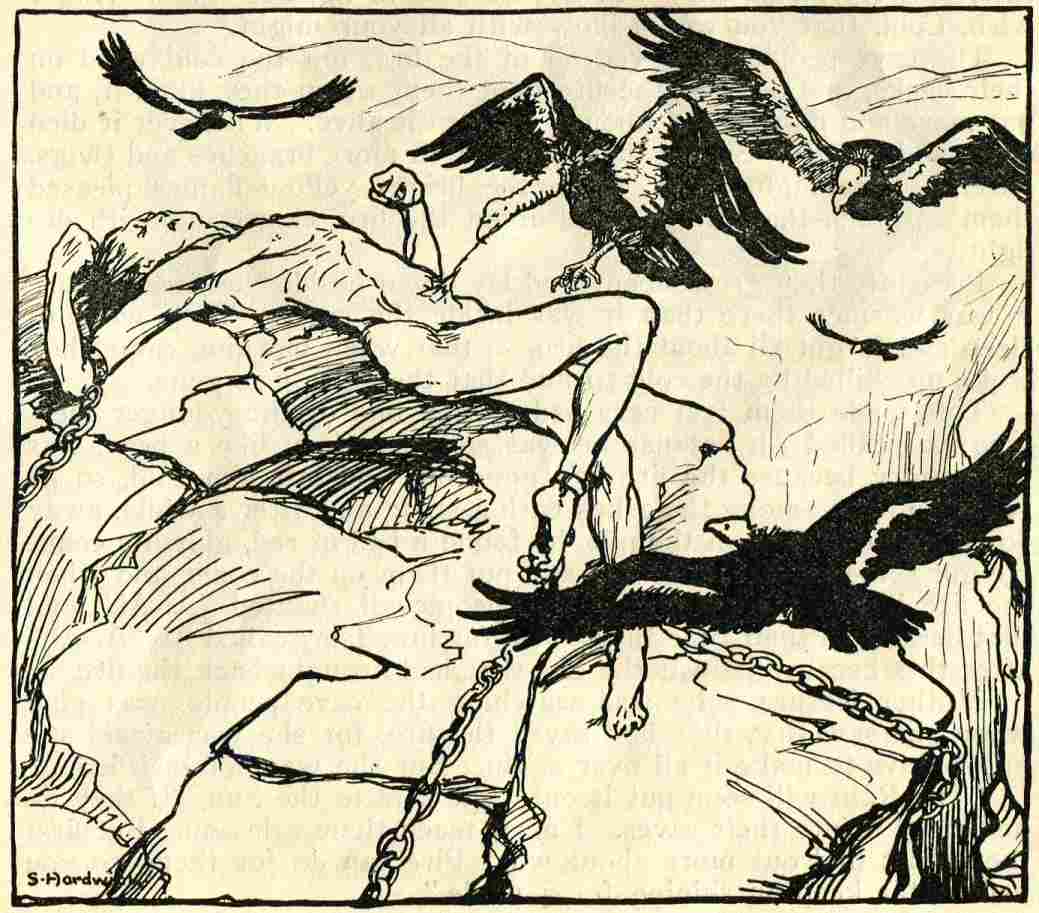
Drawings by Sibella Hardwick, 1929 and 1930
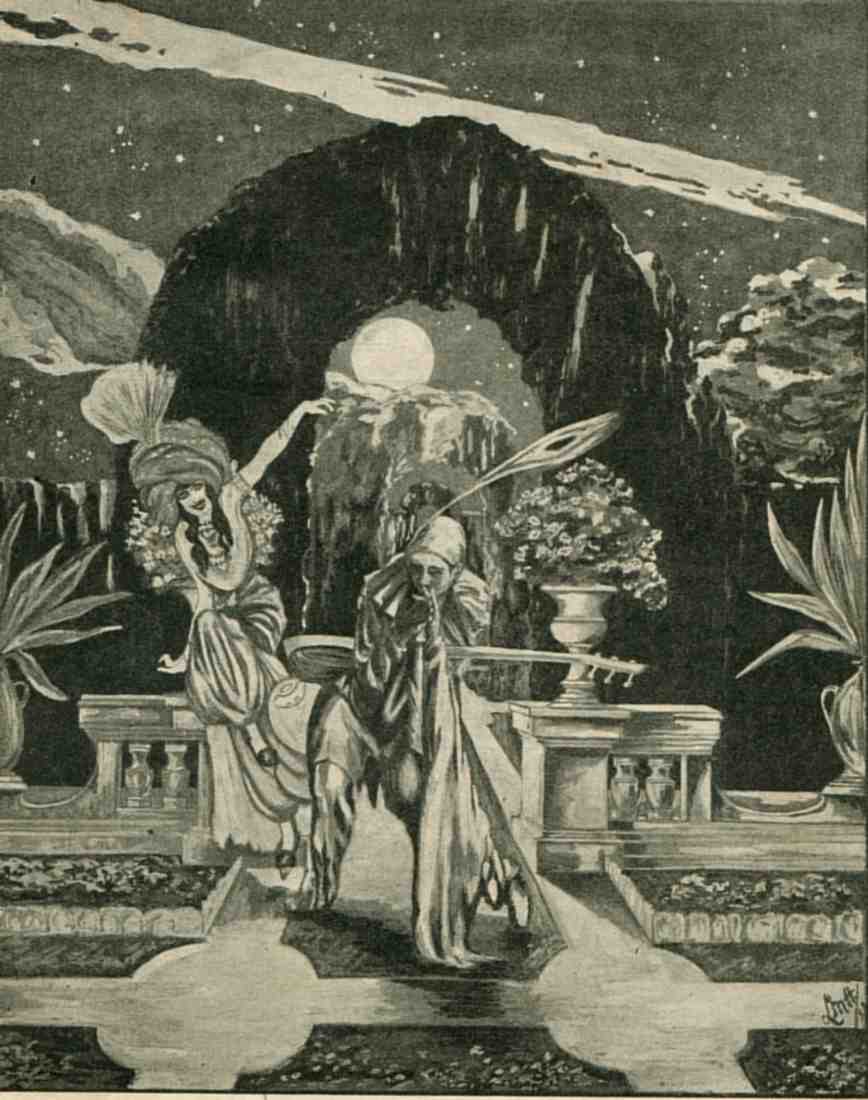
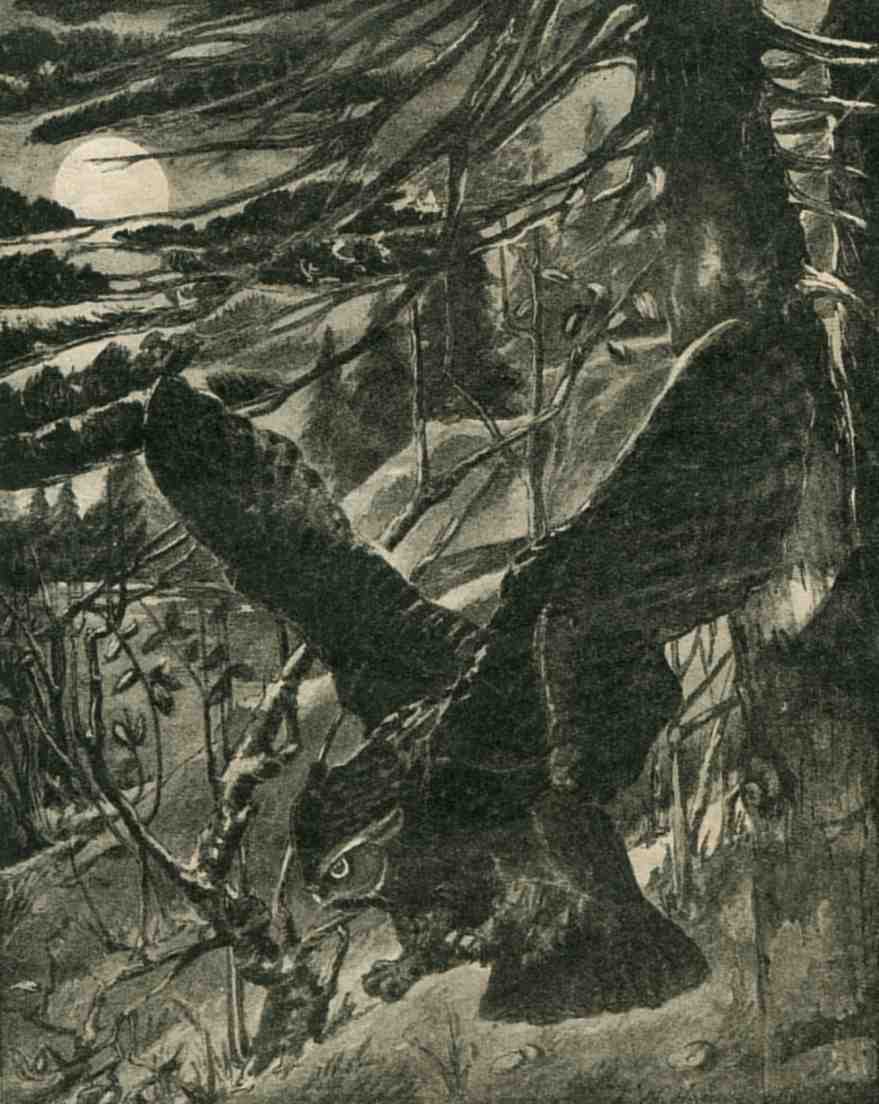
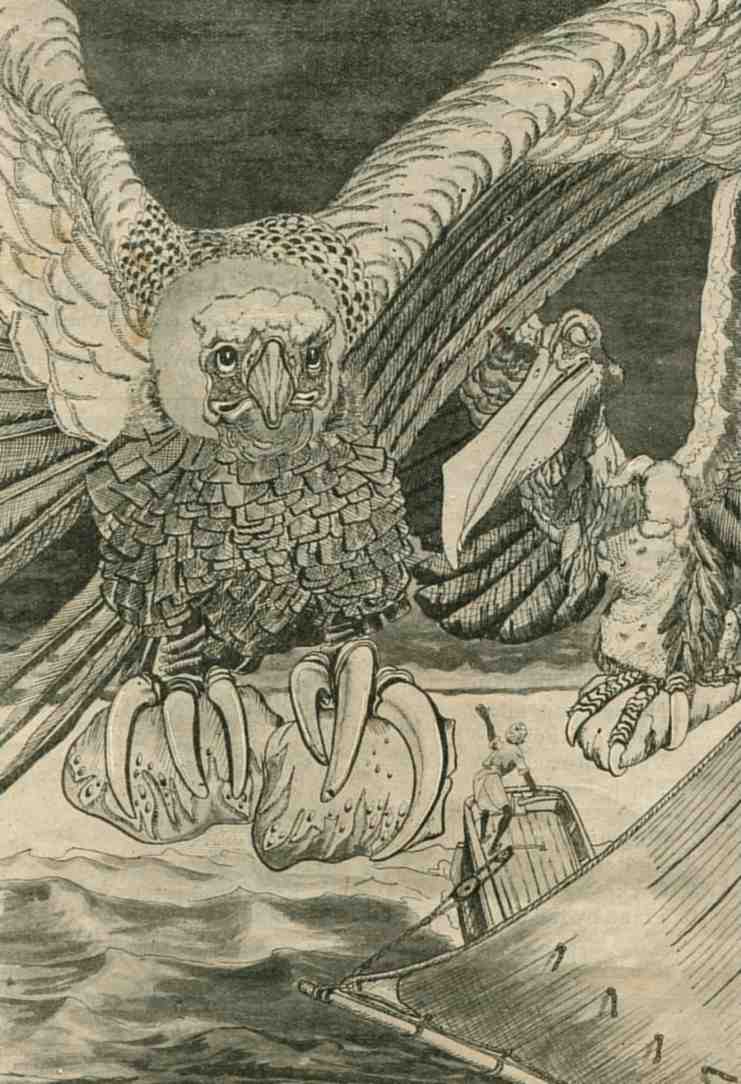
November 1927, March 1929, June 1929 cover images for School Days magazine (click to enlarge)
School Days now provides us with an educational and interesting look at life in
Vancouver three-quarters of a century ago. The advertisements in the magazine are
aimed at audiences ranging from grade school children and their parents to the
teachers and administrators who ran the schools. Advertisements for automobiles
were printed alongside those of bicycles. B.C. Electric touted the new electricity.
Peanut butter and ice cream were hawked on the same pages as massive mimeograph
machines and school supplies.
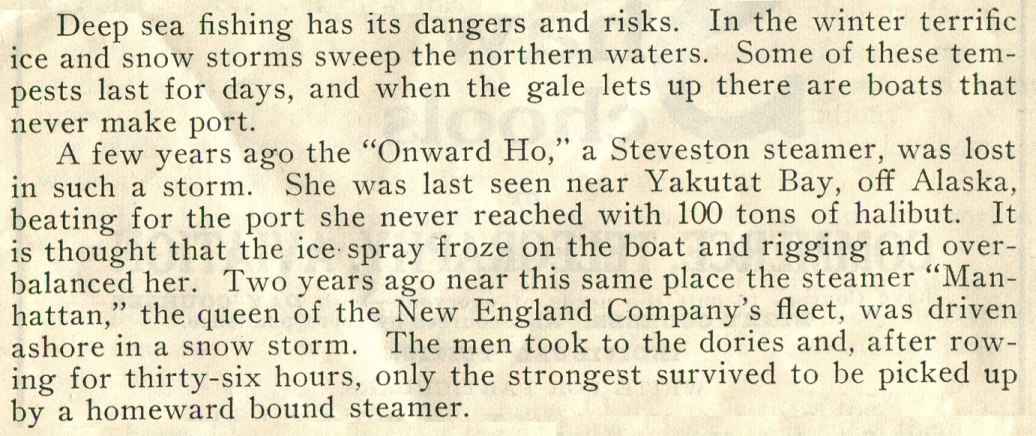
From a story about fishing, March 1930
The last issue of School Days was printed in June, 1930. There was no farewell
notice in that issue, no "thank-you" to the thousands of children who had purchased
and enjoyed the magazine through the years. And yet an air of "business as usual, see
you in the fall" somehow dissolved over the course of the summer, and the magazine
simply ceased to exist with little to mark its passing.
Over the years existing copies of the magazine dwindled in number, from all of the
usual number of ways: discarded as garbage, used to light fires, destroyed accidentally
by fire or rot, or donated to the WW II paper drives. The author of this article has
yet to locate a copy of every issue - at least fifteen issues remain to be re-discovered
and enjoyed again.
Many of the stories in School Days remain as fresh and interesting as the day they
were penned - a long-lasting tribute to West Coast outlooks and open-mindedness in
education, from teachers invigorated with building an educational system relevant to the
new province's vast demands.
Collections of School Days magazine are on file at the Vancouver Public Library -
Northwest Collection, Main Branch; Vancouver City Archives; U.B.C. Library - Special
Collections; and the B.C. Provincial Archives.
Clippings:
"The sketches have already appeared in "School Days": but
those who have delighted in them in these pages will hasten only the more quickly to
enjoy them once more in their new dress."
From "Educational Notes" by Spectator
British Columbia Monthly, December 1924
HOME















































